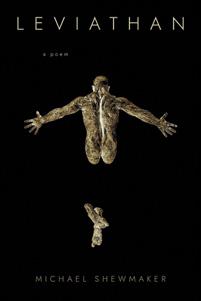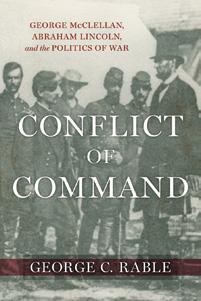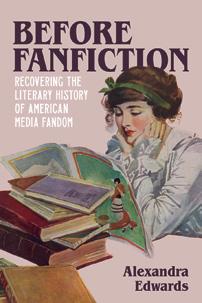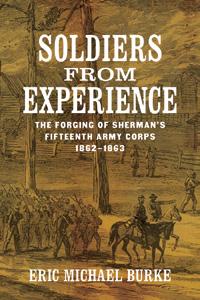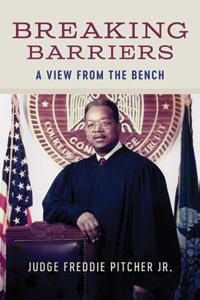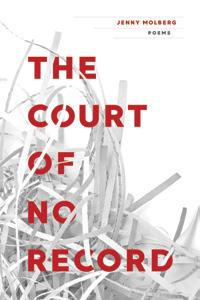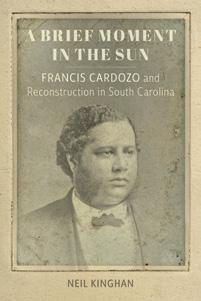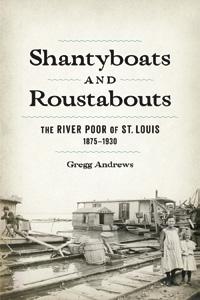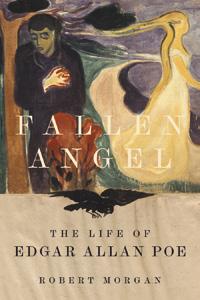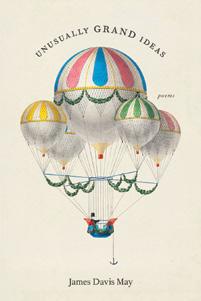

Louisiana State University Press Books for Spring 2025
CONTENTS
Subject
Atlantic Studies / 10
Biography / 3, 18
Civil Rights / 9
Civil War / 12–15, 17
Creole Studies / 8–9
Foodways / 6
Gender Studies / 17
Historical Geography / 1
Labor Studies / 19
Literary Studies / 22–27
Louisiana / 1–9, 16
Memoir / 20
Military History / 15
Music Studies / 2, 21
New Orleans / 4–7
Poetry / 28–35
Poetry Criticism / 24, 27
Political Science / 18
Religious Studies / 18
Slavery and Abolition / 10
Social History / 4
Southern History / 11–13, 16–17, 19
Southern Studies / 23
Sports and Recreation / 11
U.S. History / 3, 5, 7, 11–19
World War II / 5, 25
Author
Ballantyne, Fractured Freedoms / 16
Barker, The Complete Poems / 28
Bennett, Antislavery in the Dissenting Atlantic / 10
Caillot, Late to the Fight / 15
Campanella, Crossroads, Cutoffs, and Confluences / 1
Cologne-Brookes, Portraits from Paris / 20
Dessens, Gentilly / 7
Dubrow, Civilians / 32
Friedman, An Arm Fixed to a Wing / 33
Gaudin, Sunset Limited / 8
Gibbons, Young Woman with a Cane / 31
Gould, Gentilly / 7
Gross, Sisterhood of the Lost Cause / 17
Halliday, Living Name / 27
Kane, Naked Ladies / 29
Keating, The Brandy Milk Punch / 6
Mann, You Are My Sunshine / 2
Manning, We Came to Rebuild New Orleans / 4
McIlhenny, American Socialist / 18
McKiven, The Consequences of Confederate Citizenship / 12
Morgan, Frank Zappa’s America / 21
Mueller, Preserving the Legacy / 5
Naffis-Sahely, Michael Hofmann / 26
Noll, The 1968 Florida Teachers’ Strike / 19
O’Dell, Reinventing the American Thoroughbred / 11
Patterson, American Populist / 3
Pugh, Southerners Acting Southern / 23
Richard, Turned Earth / 35
Romtvedt, Still on Earth / 34
Sarnowski, A New Way of Seeing / 25
Schieffler, Hundreds of Little Wars / 13
Schreiber, Breath Lines / 24
Shannon, Invisible Blackness / 9
Shiels, Green and Blue / 14
Sophasarun, Novice / 30
Stith, Hundreds of Little Wars / 13
Sumich, The Brandy Milk Punch / 6
Wyatt, Afterlife / 22

Front cover: AdobeStock/Bonnie Taylor Barry
Crossroads, Cutoffs, and Confluences
Origins of Louisiana Cities, Towns, and Villages
RICHARD CAMPANELLA
PRAISE FOR RICHARD CAMPANELLA
“Campanella is a masterful storyteller who makes a technical topic comprehensible through clear, concise writing and by weaving into his narrative juicy political intrigue, rich details, and personal stories of quirky characters, be they settlers, ambitious landowners and investors, engineers, or elected officials.”—New Orleans Times-Picayune/Advocate
PRAISE FOR CROSSROADS, CUTOFFS, AND CONFLUENCES
“No one has done more than Richard Campanella to enrich our understanding of how geography has sorted New Orleanians across a cityscape once suitable only for seasonal habitation before Europeans re-engineered it into a place of 24/7 permanence. Now, several books into a résumé chock-full of important publications, Campanella has trained his considerable talents on the entirety of Louisiana. . . . Crossroads, Cutoffs, and Confluences is a delight to read, an evergreen book sure to have wide appeal.”—Lawrence N. Powell, author of The Accidental City: Improvising New Orleans
Richard Campanella’s Crossroads, Cutoffs, and Confluences tells the epic story of human settlement in Louisiana, unearthing the original geographical rationales for the formation of hundreds of cities, towns, and villages where most Louisianians live now. Campanella illuminates why these communities formed where they did, be they at river confluences, forks,
crossroads, heads of navigation, ferry landings, shortcuts, portages, resource-extraction sites, or railroad stations, and explores other spatial factors that initially attracted settlers.
Many of these raisons d’être have faded into the past. People no longer settle in Alexandria, for example, on account of the Red River rapids; nor do they reside in Breaux Bridge because of Breaux’s footbridge over Bayou Teche, or in Cut Off because its canal cut off days of arduous travel. Nevertheless, residents of those communities can trace every movement of their lives to those forgotten reckonings, made at a time when history cast those geographies as critical to the comings and goings of their forebears.
Readers curious about the origins of Louisiana’s cities, towns, and villages can turn to Crossroads, Cutoffs, and Confluences for answers to that most fundamental question of human geography: Why are we here?
RICHARD CAMPANELLA is professor of geography and associate dean for research at the Tulane School of Architecture. Recipient of the 2019 Louisiana Writer Award and named Knight in the Order of the Academic Palms by the French government, Campanella has written numerous books and articles about Louisiana history and geography, including Draining New Orleans: The 300-Year Quest to Dewater the Crescent City
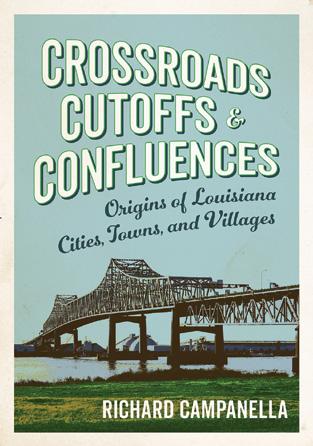
APRIL 2025
360 pages, 7 x 10, 157 color images, 4 halftones, 13 maps, 2 graphs
978- 0- 8071- 8368-7, Hardcover $49.95 978-0-8071-8510-0, Paperback $34.95 Louisiana / Historical Geography
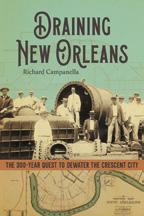
978- 0- 8071-7854- 6 Hardcover $39.95
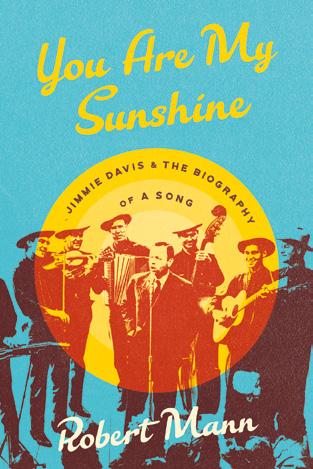
FEBRUARY 2025
216 pages, 6 x 9, 24 halftones
978- 0- 8071- 8350-2
Hardcover $29.95, ebook available Louisiana / Music Studies
Published with the assistance of the V. Ray Cardozier Fund
You Are My Sunshine
Jimmie Davis and the Biography of a Song
ROBERT MANN
978- 0- 8071-7952- 9
Hardcover $34.95
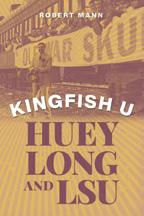
“Robert Mann, who knows more about Louisiana politics than just about anyone, draws upon his love of country music to give us a fascinating account of two-time governor Jimmie Davis. Forever associated with ‘You Are My Sunshine,’ Davis used this song as the foundation for a dual career as politician and musical performer. Mann’s exploration of the song’s obscure origins, widespread appeal, and myriad recordings is a masterpiece of cultural history, and his analysis of Davis’s political transformation from easygoing moderate to outspoken segregationist is spot-on. But you don’t need to be a country music fan or a student of Louisiana politics to enjoy this book. Mann’s blend of creative scholarship and exuberant prose is sure to attract a much wider audience. It is a thoroughly rewarding, and illuminating, read.”—Adam Fairclough, author of Race and Democracy: The Civil Rights Struggle in Louisiana, 1915–1972
“‘You Are My Sunshine’ has conferred impressive wealth and political power while holding close its many secrets like a coy lover. But with the flair of a mystery writer and the rigor of the admired scholar he is, Robert Mann may have finally shone true light on one of America’s beloved standards.”—Michael Streissguth, author of Johnny Cash: The Biography
“In You Are My Sunshine, Robert Mann fuses the story of a song, from its remote origins when Jimmie Davis purchased the rights, across the years of Davis’s fame as a country star and twice-elected Louisiana governor. Mann adroitly shows how the genial Davis became a cipher for white supremacists’ attack on integrated schools in the early 1960s. Behind the song’s sweet lyrics—refashioned by blues rocker Ray Charles in 1962—lay a governor who spent four decades out of office using music to whitewash his dark political record. What a story! Bob Mann is a Louisiana treasure.”—Jason Berry, author of City of a Million Dreams: A History of New Orleans at Year 300
ROBERT MANN is the author of ten books on U.S. and Louisiana political history. He was a senior aide to US senators Russell Long and John Breaux and Louisiana governor Kathleen Babineaux Blanco. He served on the faculty of LSU’s Manship School of Mass Communication for eighteen years before retiring in 2024. He lives in Baton Rouge.
American Populist
Huey Long of Louisiana
THOMAS E. PATTERSON
“In American Populist, Thomas E. Patterson provides a much-needed corrective to most of what has been written about Huey Long. Patterson takes seriously the Kingfish’s own words and shows Long to be less of a manipulative, power-hungry, end-justify-the-means demagogue and more of a politician driven by a real concern for those who lacked power and the creator of a viable alternative politics for his time.”—Michael S. Martin, author of Russell Long: A Life in Politics
“Patterson’s American Populist is a fresh and intriguing biography of Louisiana’s most consequential political leader. The author’s exhaustive examination of Huey Long’s life and career will be controversial, but his appraisal of the Kingfish is worthy of our consideration.”—Robert Mann, author of Kingfish U: Huey Long and LSU
Thomas E. Patterson’s monumental biography of Huey Long is a profound reevaluation of his life and legacy, recognizing him as an inspirational progressive thinker, populist hero, and radical influence on the New Deal before an assassin’s bullet ended his life in 1935. First as governor and then as U.S. senator, Long transformed the politics of Louisiana by standing for the interests of citizens whom state officials had historically ignored. He eased suffrage restrictions so that more people could vote, and voters endorsed his program of more robust government services and shifting the tax burden to those better
able to pay. In the United States Senate, during the darkest days of the Great Depression, he advocated loudly and ceaselessly for the redistribution of wealth, expanding public works, increasing the money supply, insuring bank deposits, paying old-age pensions and veterans’ benefits, delivering a minimum income for families, and funding college and vocational education. President Franklin D. Roosevelt, along with other politicians and pundits, dismissed Long’s proposals as nonsense put forth by a reckless demagogue in search of votes.
Despite several biographies, acclaimed novels, and historical studies in the years since Long’s death, his reputation today is mostly caricature: a spellbinding speaker, a dictator, a populist firebrand who was unprincipled and corrupt. Using previously untapped personal papers of Long and his son Russell, other primary sources, recent scholarship, and his experience as a lawyer, Patterson provides a necessary corrective as he analyzes the contours of Long’s career, deconstructs the elements of his success, undercuts several myths related to his time in office, and explains the circumstances that led to his ultimate downfall. The result is the most comprehensive, balanced, and analytical study of the Kingfish to date.
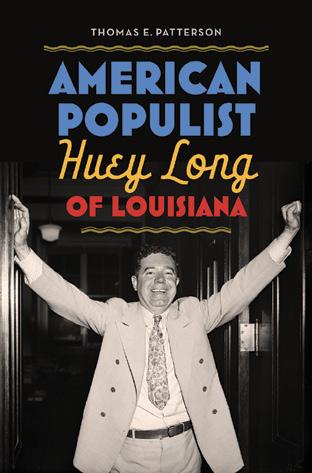
FEBRUARY 2025
720 pages, 6 ¹∕ 8 x 9 ¼, 28 halftones, 8 charts, 1 map
978- 0- 8071- 8299- 4
Hardcover $49.95, ebook available Louisiana / U.S. History / Biography
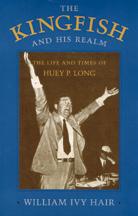
THOMAS E. PATTERSON is a Chicago attorney and founder of the Patterson Law Firm.

JUNE 2025
328 pages, 6 x 9
978- 0- 8071- 8202- 4
Paperback $29.95, ebook available LSU Press Paperback Original Louisiana / New Orleans / Social History
We Came to Rebuild New Orleans
Stories of the Hurricane Katrina Volunteers
CHRISTOPHER E. MANNING
“We Came to Rebuild New Orleans examines the experiences of the mass of volunteers who cycled through post-Katrina New Orleans contributing to post-disaster cleanup, gutting and rehabbing homes, new construction, service delivery, and wetlands restoration. Through fine- grained case studies of volunteers, Christopher E. Manning provides us with a unique window into their motivations, desires, and experiences. We Came to Rebuild New Orleans casts a critical eye on the limits of nonprofit and volunteer-led reconstruction, but also sketches a practical way forward that might center more democratic and effective coordination of public resources and local recovery and reconstruction work in the event of future disasters.”
—Cedric Johnson, editor of The Neoliberal Deluge: Hurricane Katrina, Late Capitalism, and the Remaking of New Orleans
“Christopher Manning’s We Came to Rebuild New Orleans is an erudite model of engaged scholarship on one of the worst disasters to ever befall an American city. Manning vividly describes the enormous altruism of volunteer recovery workers specifically and the American people in general, while convincingly documenting the inadequacy of relying upon nonprofit volunteer labor to execute a recovery of this scale.
ALSO OF INTEREST
978- 0- 8071-7044-1
Hardcover $45.00s
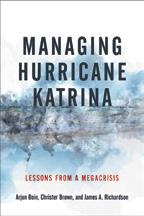
This is a must-read for anyone interested in public policy, disaster relief, environmental sustainability, or the history of American cities.”—Timothy J. Gilfoyle, associate editor of the Journal of Urban History and editor of The Urban Underworld in Late Nineteenth-Century New York
“Manning has produced a book that is at once a model application of oral history and a probing examination of the massive volunteer response to Hurricane Katrina’s devastation of the city of New Orleans. This engaging public history offers important lessons for how to better integrate volunteer and government resources in the response to future disasters.”—Theodore J. Karamanski, author of Mastering the Inland Seas: How Lighthouses, Navigational Aids, and Harbors Transformed the Great Lakes and America
An Army brat, historian, and former professional Latin dancer and choreographer, CHRISTOPHER E. MANNING received his PhD from Northwestern University in 2003 and has served as the vice president for student affairs and campus diversity at San Diego State University since 2023.
Preserving the Legacy
Creating The National WWII Museum
GORDON H. “NICK” MUELLER
Foreword by TOM BROKAW
Preserving the Legacy offers a comprehensive and compelling look at the founding and first two decades of The National WWII Museum, now one of the largest and most immersive military museums in the United States. Before its inception, friends and historians Gordon H. “Nick” Mueller and Stephen E. Ambrose recognized the need for an institution dedicated to preserving the oral histories of WWII veterans and the history of World War II more generally. Their efforts resulted in the opening of the D-Day Museum on June 6, 2000.
With funding from the federal government, the state of Louisiana, and numerous individuals— including actor Tom Hanks and director Steven Spielberg—the Museum rapidly expanded. Following Ambrose’s death in 2002, the U.S. Congress designated the institution as “America’s National World War II Museum.” Today it consists of seven separate pavilions that span the entirety of the war and boasts several multifaceted educational programs, many of which are held in the Museum’s Higgins Hotel and Conference Center. Its twenty-five-year history is one of remarkable success.
Preserving the Legacy begins with a foreword by famed journalist and longtime champion of the Museum Tom Brokaw. Nick Mueller then narrates the growth of the Museum, detailing its leadership and the various intellectual challenges involved in accu-
rately portraying the scale of wartime sacrifice and loss. He traces the development, deliberations, and decisions of the many boards and committees that helped transform the embryonic institution into a sprawling museum complex in the heart of New Orleans. Far surpassing the modest intentions of its founders, The National WWII Museum not only provides today’s visitors with authentic historical context but also will serve as a valuable educational resource for generations to come.
GORDON H. “NICK” MUELLER is Founding President and CEO Emeritus of The National WWII Museum. He is the author of “Everything We Have”: 6.6.44 and, with Kali Martin Schick, Building The National WWII Museum.
Beginning in 1966, TOM BROKAW spent his entire distinguished career with NBC News. He is the author of The Greatest Generation, Boom! Voices of the Sixties, The Time of Our Lives, and other books.
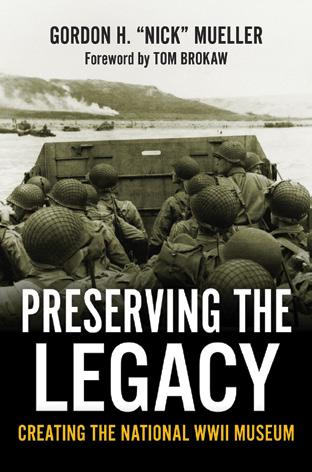
JUNE 2025
400 pages, 6 ¹∕ 8 x 9 ¼, 40 halftones
978- 0- 8071- 8449-3
Hardcover $34.95, ebook available
WWII / U.S. History / Louisiana / New Orleans


MARCH 2025
152 pages, 5 x 7, 18 color images, 6 halftones
978- 0- 8071- 8353-3
Hardcover $24.95
Foodways / Louisiana / New Orleans
ICONIC NEW ORLEANS COCKTAILS
The Brandy Milk Punch
SHARON KEATING and CHRISTI KEATING SUMICH
978- 0- 8071-7604-7
Hardcover $24.95

“In the city where brunch was invented, the breakfast cocktail was sure to follow. The brandy milk punch is New Orleans’s favorite eye-opener and the perfect way to guarantee a fun day in the Crescent City. At last, here’s the story of how it all came to be!”—Poppy Tooker, author of Drag Queen Brunch and host of Louisiana Eats! podcast
“If variety is the spice of life, then The Brandy Milk Punch proves that this cocktail is the ‘spice’ of a New Orleans brunch—or any time. Mother-daughter duo Sharon Keating and Christi Keating Sumich dive deep into the history of this beloved cocktail, creating a lively narrative that draws you in so much that you will finish reading it with a brandy milk punch in hand.”—Sue Strachan, author of The Café Brûlot
A descendant of one of the oldest cocktails, the brandy milk punch has become a calling card for New Orleans brunch culture. In The Brandy Milk Punch, Sharon Keating and Christi Keating Sumich explore the cocktail’s origins and its relationship to the Crescent City’s food scene. With a versatile recipe that offers space for creative reimagining, the brandy
milk punch got its start with the centuries-old English (or clarified) milk punch before evolving into its current incarnation in a city renowned for its commitment to revelry. The Brandy Milk Punch describes the cocktail’s well-earned place within New Orleans brunch culture and shares recipes for both the traditional version of the cocktail and the many variants invented by creative bartenders across the city.
SHARON KEATING is a lawyer by profession with a passion for the history and culture of New Orleans. Mother of two and grandmother of five, she lives in uptown New Orleans with her husband, a rescued yellow lab, and a resident ghost named Cornelia.
CHRISTI KEATING SUMICH holds a doctoral degree in history and a master’s degree in English literature. She resides just outside of New Orleans with her husband and has three grown children, a daughter-in-law, and too many pets.
A New Orleans Plantation in the French Atlantic World, 1818–1851
Translated and Edited by NATHALIE DESSENS and VIRGINIA MEACHAM GOULD
“What a remarkable collection of documents! I know of nothing comparable in the historical record. These letters written by Auvignac Dorville between 1818 and 1851—when he managed the Gentilly plantation on the outskirts of New Orleans—contain a wealth of information on the plantation, its enslaved labor force, and the expansion of the city and its economic growth. Nathalie Dessens and Virginia Meacham Gould have ably situated the letters in the history of the city, the region, and the wider Atlantic world. This unique and important collection offers invaluable insights on the region’s history.”—Randy J. Sparks, author of Africans in the Old South: Mapping Exceptional Lives across the Atlantic World
“How rare it is to hear voices from two hundred years ago— not from the famed French Quarter or Garden District, like many archival sources, but from Gentilly, a neighborhood known today for its modern subdivisions and highway interchanges. Through the meticulous translation and editing of letters sent to France over thirty- three years, Dessens and Gould bring to life the daily experiences on a multi-use plantation on the rural outskirts of antebellum New Orleans. Gentilly is a treasure trove of important insights into everything from enslaved labor and race relations to banking and household finances, as well as health and foodways, ecology, infrastructure, and urban development.”—Richard Campanella, author of Crossroads, Cutoffs, and Confluences: The Origins of Louisiana Cities, Towns, and Villages
Between 1818 and 1851, Auvignac Dorville, a Louisiana Creole, managed the day-to-day operations of the Gentilly plantation, located a few miles from New Orleans along Bayou St. John. The plantation belonged to Henri and Marguerite de Sainte-Gême, who entrusted their property to Dorville’s careful supervision when they left Louisiana for the SainteGême ancestral home in France. Dorville wrote to the Sainte-Gêmes for more than thirty years, offering detailed glimpses of the plantation’s crops, financial situation, environmental challenges, and events surrounding the two dozen enslaved men, women, and children working there. Expertly translated and annotated by Nathalie Dessens and Virginia Meacham Gould, Dorville’s letters illuminate nineteenthcentury life on an urban plantation that connected the rural world of Louisiana to the urban sphere of New Orleans and reached far into the Atlantic world.
NATHALIE DESSENS is professor of history at the University of Toulouse and the author of Creole City: A Chronicle of Early American New Orleans.
VIRGINIA MEACHAM GOULD is a lecturer in history at Tulane University and the editor of Chained to the Rock of Adversity: To Be Free, Black, and Female in the Old South.
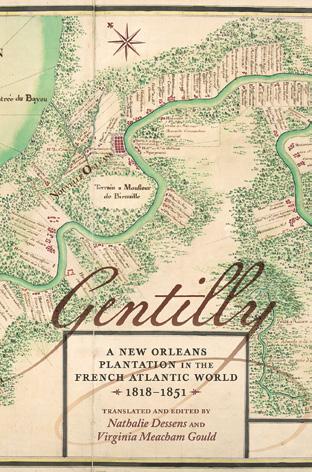
APRIL 2025
296 pages, 6 ¹∕ 8 x 9 ¼, 9 maps, 1 halftone 978- 0- 8071- 8366-3
Hardcover $44.95, ebook available Louisiana / U.S. History / New Orleans
Published with the assistance of The Noland Fund
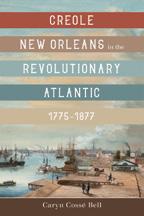
ALSO OF INTEREST
978- 0- 8071-7937- 6
Hardcover $50.00s

MARCH 2025
296 pages, 6 x 9, 25 halftones
978- 0- 8071- 8365- 6
Hardcover $34.95, ebook available Louisiana / Creole Studies
Sunset Limited An Autobiography of Creole
WENDY A. GAUDIN
ALSO OF INTEREST
978- 0- 8071-2601-1
Paperback $40.00s
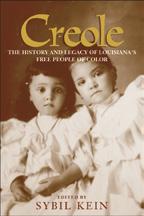
“Sunset Limited offers a formidable exploration of Creole identity within the context of the French colonial world. Blending memoir, archival research, cultural analysis, and poetry, Wendy A. Gaudin plumbs the complex lives of those shaped by the multifaceted violence of empire. Revealing the enduring consequences on Creole lives, she challenges dominant colonial narratives, intricately capturing stories long suppressed.”—Kim Marie Vaz-Deville, author of The “Baby Dolls”: Breaking the Race and Gender Barriers of the New Orleans Mardi Gras Tradition
“Just as Creole is neither Black nor white, and Louisiana is not quite northern or southern, Sunset Limited is neither history nor memoir—but something much more. As deeply personal as it is deeply researched, Wendy Gaudin’s work is a loving, lyrical hymn to mixedness in a world where so many bodies are broken upon the altar of either- or.” —Michael Tisserand, author of KRAZY: George Herriman, a Life in Black and White
Shaped by centuries of migration, enslavement, freedom, colonization, and cultural fusion, Louisiana Creole identity is often simplified or misunderstood to fit into today’s ideas about race and nationality. In Sunset Limited: An Autobiography of Creole, Wendy A. Gaudin fearlessly takes on the many meanings of Creole in a lyrical exploration of how the multilayered, transnational, bilingual, and racially expansive history of New Orleans and Louisiana has manifested itself in her own diasporic Creole family. When Gaudin’s Creole grandparents boarded the Sunset Limited train in Jim Crow–era New Orleans,
they imagined new lives for themselves in the city of Los Angeles. There, they helped to build a Creole community around shared culture, religious celebrations, and family. As an adult, yearning to know more about her Creole background, Gaudin returned to Louisiana. There, she began to trace her Creole ancestors back to the time before the Civil War, confronting hard truths about the past her grandparents left behind.
Sunset Limited explores the boundaries of what it means to be Creole, how migration shaped Gaudin’s family and her community, and how this history is remembered and told. Weaving together the stories of her mixed-race elders, the artifacts of her ancestors, and memories of her California childhood, Gaudin argues that history is not a cold, linear record of the past. Rather, it is a deeply felt understanding of how we are shaped by the movements of our ancestors, and of our rich and ever-changing relationships with those who came before us.
WENDY A. GAUDIN is a historian and writer whose interdisciplinary work centers southern-descended, mixed-heritage, and mixed-race populations and histories. As a mixed-heritage Louisiana Creole of Color whose elders migrated to California in the first half of the twentieth century, Gaudin is deeply moved, shaped, and inspired by her expansive community’s story. She divides her time between New Orleans and Acadiana, and she teaches history at Xavier University of Louisiana.
Invisible Blackness
A Louisiana Family in the Age of Racial Passing
KATY MORLAS SHANNON
Invisible Blackness explores the complex lives of Creoles of mixed race born in Louisiana to enslaved women and the white men who enslaved them. Individuals such as Alice Thomasson Grice forged their own identities—and often reinvented themselves— within the increasingly strict racial order of antebellum and postbellum Louisiana.
Alice Thomasson Grice occupied an unusual position among mixed-race Creoles of her era, as her white father recognized her formerly enslaved mother as his wife and raised Alice and her siblings as free people. After Alice married a white steamboat captain, Charles Grice, she and her children chose to identify as white. Invisible Blackness explores why Alice, her children, and friends in similar positions elected to cross the color line during the so-called “great age of passing” that spanned from 1880 to 1925. While it’s impossible to quantify the number of people who crossed the color line at any given time, evidence suggests that the rate of passing corresponded closely with the severity of anti-Black oppression and discrimination. By the 1890s, when the Supreme Court upheld Jim Crow laws and lynchings were on the rise, Black people who could pass had a strong motivation to do so. For the Grices, passing
afforded the only means of social, economic, and political advancement available to them.
Drawing on a vast array of primary sources, ranging from sacramental records and bills of sale to wills and military pension files, Invisible Blackness sheds light on how this liminal group of individuals defined themselves and shaped their identities. The lives of the Grices and people like them underscore that race is both a social construct and a significant lived reality. Beyond these broad, pressing historical questions lie issues of love, family, and the universal quest for belonging that transcend time, place, and race.
KATY MORLAS SHANNON is the author of Antoine of Oak Alley: The Unlikely Origin of Southern Pecans and the Enslaved Gardener Who Cultivated Them, which won the 2022 Phillis Wheatley Book Award for best biography. She was instrumental in the early stages of research for Whitney Plantation, created a searchable online database of more than four hundred enslaved individuals at Evergreen Plantation, and co-curated an exhibit about the enslaved community at Laura Plantation. Katy lives in Mandeville, Louisiana, with her husband and three children.

MARCH 2025
200 pages, 5 ½ x 8 ½, 13 halftones
978- 0- 8071- 8382-3
Hardcover $29.95, ebook available Louisiana / Creole Studies / Civil Rights
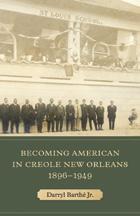
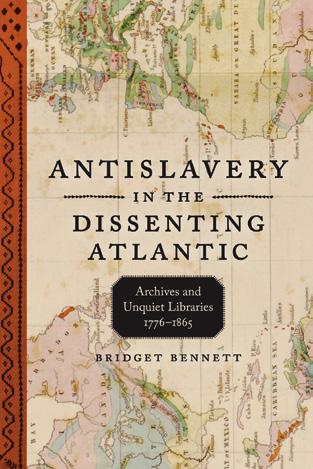
APRIL 2025
272 pages, 6 x 9, 9 halftones
978- 0- 8071- 8371-7
Hardcover $45.00s, ebook available
Slavery and Abolition / Atlantic Studies
Antislavery, Abolition, and the Atlantic World
R. J. M. Blackett and W. Caleb McDaniel, Series Editors
James Brewer Stewart, Editor Emeritus
Antislavery in the Dissenting Atlantic
Archives and Unquiet Libraries, 1776–1865
BRIDGET BENNETT
ALSO OF INTEREST
978- 0- 8071-7194-3
Hardcover $50.00s
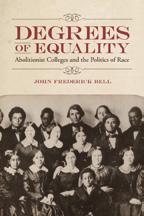
“ Antislavery in the Dissenting Atlantic is a landmark approach to grassroots transatlantic antislavery activism among British religious communities that mobilized political and practical principles of ‘dissent’ to transformative effect in the decades between the American Revolution and the Civil War. It provides an important corrective to the underacknowledged influence of Moravians on British antislavery and demonstrates how measures undertaken at the local and even the domestic level, particularly by women, contributed economically and in other significant ways to the work of antislavery.”—Fionnghuala Sweeney, author of Frederick Douglass and the Atlantic World
“In this deeply investigated, well-written book, Bridget Bennett expands our understanding of transatlantic abolitionism by examining the groups that nurtured the movement’s activists. Bennett focuses on the people, ideas, objects, and printed materials that united these individuals across the Atlantic world. She supplies surprising and considerable insights, highlighting, for example, the relationships between Quakers, Moravians, and Black abolitionists.” —Julie L. Holcomb, author of Moral Commerce: Quakers and the Transatlantic Boycott of the Slave Labor Economy
“Bennett greatly enriches our appreciation of dissenting factions, abolitionist campaigning, and the interaction between written texts, artifacts, and everyday conversations and debates. Based on meticulous research, Antislavery in the Dissenting Atlantic presents a richly nuanced account of some of the lesser-known elements of the common anti-
slavery story, setting them in a transatlantic context that poses critical questions about the ‘connectedness’ of reform efforts during the eighteenth and nineteenth centuries.”
—J. R. Oldfield, author of Transatlantic Abolitionism in the Age of Revolution
Bridget Bennett’s Antislavery in the Dissenting Atlantic explores the impact of a historically situated set of transatlantic networks, chiefly centered on prominent communities of religious nonconformists in England and Pennsylvania in the decades between the American Revolution and American Civil War. The study reveals the alliances forged out of progressive religious and political commitments to dissent that enabled expansive connections across the Atlantic world. These developments emerged from local proximities and combined an optimistic devotion to social justice and education with a global vision. Bennett’s work offers an original and innovative reading of transatlantic partnerships, exploring obscure writings, overlooked individuals, and the cultures of the everyday, while also affording fresh understandings of familiar antislavery texts.
BRIDGET BENNETT is professor of American literature and culture at the University of Leeds and author of Transatlantic Spiritualism and Nineteenth-Century American Literature.
Reinventing the American Thoroughbred
The Arabian Adventures of Alexander Keene Richards
GARY A. O’DELL
Most equine authorities consider Alexander Keene Richards (1827–1881) one of the nineteenth century’s most significant Thoroughbred importers and breeders. Born in Georgetown, Kentucky, and orphaned as a toddler, Richards was adopted by his grandfather, from whom he inherited not only the family farm in Georgetown but also Transylvania, a cotton plantation in East Carroll Parish, Louisiana. Horses fascinated Richards from an early age, and as his passion deepened, he became convinced that the key to improving the stamina of the Thoroughbred, in an era when American racing consisted of grueling longdistance competitions, was to crossbreed American horses with the magnificent steeds of the Middle East.
As Reinventing the American Thoroughbred recounts, Richards traveled thousands of miles on expeditions into the heart of Syria to obtain Arabian stock of the purest blood. He became the first American— indeed the first Westerner—to venture into the desert to bargain directly with nomadic tribesmen for their horses. Richards transported the animals back to his grandfather’s farm near Georgetown, which he transformed into a premier breeding establishment called Blue Grass Park. He also used his Transylvania plantation in Louisiana for similar purposes. Richards relied on Ansel Williamson, an enslaved horse trainer, to prepare his Thoroughbreds for rac-
ing. Williamson developed a reputation as one of the best handlers in the nation.
The Civil War interrupted Richards’s equine breeding experiment. Dependent on southern cotton produced by enslaved labor for his wealth, Richards sided with the Confederacy and was appointed volunteer aide-de-camp by General John C. Breckinridge. During his brief military career, he served at Vicksburg and later in the attack on Baton Rouge. In late 1862, he received Breckinridge’s permission to travel to England to purchase artillery for the general’s Kentucky brigade. Richards remained in London for the remainder of the war, returning to the United States after receiving amnesty. Bankrupt, he spent the rest of his life attempting to rebuild Blue Grass Park as a nationally recognized Thoroughbred facility.
Richards’s life story, chronicled here for the first time by Gary A. O’Dell, is an epic tale of adventure, experimentation, and devastation that illuminates the grand history of the American Thoroughbred industry in fresh and fascinating ways.
GARY A. O’DELL is professor emeritus of geography at Morehead State University and the author of Bluegrass Paradise: Royal Spring and the Birth of Georgetown, Kentucky.
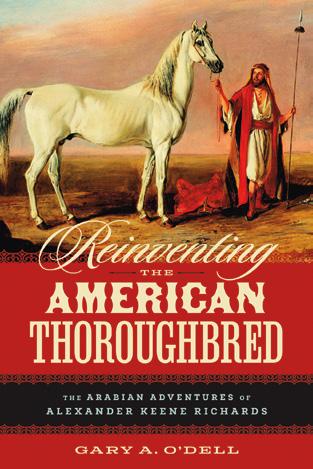
JUNE 2025
376 pages, 6 x 9, 30 halftones, 4 maps
978- 0- 8071- 8369- 4
Hardcover $44.95, ebook available
U.S. History / Southern History / Sports and Recreation
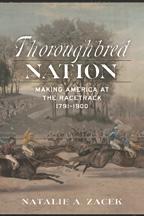

APRIL 2025
312 pages, 6 x 9, 4 halftones
978- 0- 8071- 8367- 0
Hardcover $50.00s, ebook available Civil War / U.S. History / Southern History
Conflicting Worlds: New Dimensions of the American Civil War
T. Michael Parrish, Series Editor
The Consequences of Confederate Citizenship
The Civil War Correspondence of Alabama’s Pickens Family
Edited, with Commentary and Notes, by HENRY M. McKIVEN JR.
“McKiven unlocks a remarkable archival vault containing a wealth of Civil War–era social history. Drawing from the rare correspondence among family members, particularly that between mother and son, this indispensable collection brings together home front and battlefront to reveal the interior world of privileged enslavers who fought to maintain their intertwined racial and economic hierarchies threatened by war. The Consequences of Confederate Citizenship is an essential scholarly contribution and a must-read.”
—Martha Jane Brazy, author of An American Planter: Stephen Duncan of Antebellum Natchez and New York
Mary Gaillard Pickens, a widow, and her two sons in Lee’s army reveals the challenges she faced managing three plantations with at least two hundred enslaved people while struggling with anxiety and despondency brought on by fear that her sons would die in the war. The dispatches from Sam and James Pickens reveal much about their emotional struggle to maintain a commitment to the Confederacy, while their sister Mary’s letters show how she grappled with the emotionally devastating impact of her fiancé dying in battle.
ALSO OF INTEREST
978- 0- 8071-7621- 4
Hardcover $45.00s
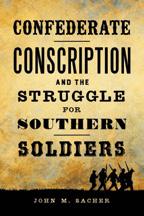
The Consequences of Confederate Citizenship is a vast collection of Civil War correspondence from the affluent Pickens family of Greene County, Alabama. Unlike nearly all published letter collections from the era, the Pickens family correspondence includes letters written on the home front as well as those penned by family members serving in the Army of Northern Virginia. The correspondence provides rare insight into the mutual dependence of family on the home front and kin at war to sustain morale and foster the formation of Confederate national identity. Expertly edited, annotated, and contextualized by Henry McKiven Jr., the correspondence between
As the letters attest, apprehension, dread, and despair were constants in the lives of the Pickens family. That emotional burden only served to bind the family together in defense of a way of life dependent upon the labor of enslaved people. The Pickens clan continued to grasp flickering hopes for victory until the bitter end, believing that somehow the Confederacy and the world they had known before the war would survive and ultimately flourish.
HENRY M. M c KIVEN JR. is associate professor of history at the University of South Alabama and the author of Iron and Steel: Class, Race, and Community in Birmingham, Alabama, 1875–1920.
Hundreds of Little Wars
Community, Conflict, and the Real Civil War
Edited by G. DAVID SCHIEFFLER and MATTHEW M. STITH
From Texas to Virginia, towns, regions, counties, regiments, prisons, and even refugee camps played a significant role in shaping the contours of the Civil War. According to historian Daniel E. Sutherland, whose many books and essays helped establish the field of community studies, these varied assemblages of individuals experienced and fought the real war. Following his lead, the contributors to Hundreds of Little Wars reveal how viewing the war from the vantage point of singular communities allows us to better understand the larger conflict.
The volume includes contributions from a wide array of Civil War scholars. Lesley J. Gordon and Eric P. Totten examine military outfits, namely the 126th New York Regiment and the 4th New Hampshire Volunteer Infantry. Madeleine C. Forrest provides an analysis of Fauquier County, Virginia, in 1862, and Matthew M. Stith evaluates a Confederate prisoner-of-war camp in East Texas. Christopher Phillips and Scott A. Tarnowieckyi investigate the middle border region spanning the Ohio, Mississippi, and Missouri rivers. Lorien Foote and G. David Schieffler assess the demographically diverse Sea Islands of South Carolina and Georgia, as well
as Helena, Arkansas. Barton A. Myers and Terry L. Beckenbaugh employ Sutherland’s framing while considering irregular war, first with an examination of partisan officers and then with a survey of the White River Valley in Arkansas. Finally, Niels Eichhorn and Michael Shane Powers assume a transnational viewpoint, comparing Richmond with Vienna, Austria, and analyzing a community of Confederate veterans in Central America.
The essays in Hundreds of Little Wars show that no one single conflict defined the Civil War. Instead, hundreds of wars existed, variously categorized by geography, race, gender, environment, and myriad other factors. Only by concentrating on these communities can we grasp the scope and complexity of the Civil War.
G. DAVID SCHIEFFLER is an instructor of history at Crowder College.
MATTHEW M. STITH is associate professor of history at the University of Texas at Tyler and author of Extreme Civil War: Guerrilla Warfare, Environment, and Race on the Trans-Mississippi Frontier.
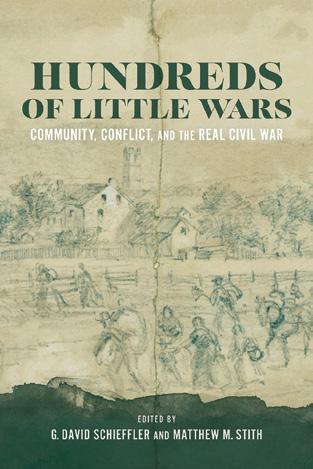
FEBRUARY 2025
272 pages, 6 x 9
978- 0- 8071- 8220- 8
Hardcover $45.00s, ebook available Civil War / U.S. History / Southern History
Conflicting Worlds: New Dimensions of the American Civil War
T. Michael Parrish, Series Editor
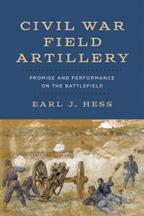
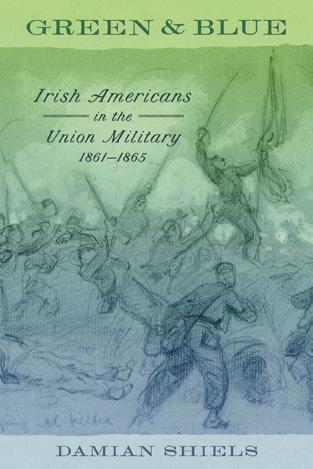
APRIL 2025
330 pages, 6 x 9, 5 graphs, 4 halftones, 1 map
978- 0- 8071- 8370- 0
Hardcover $50.00s, ebook available Civil War / U.S. History
Conflicting Worlds: New Dimensions of the American Civil War
T. Michael Parrish, Series Editor
Green and Blue
Irish Americans in the Union Military, 1861–1865
DAMIAN SHIELS
ALSO OF INTEREST
978- 0- 8071-7793- 8
Hardcover $50.00s
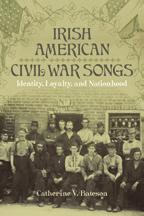
“Damian Shiels makes a substantial contribution to the literature on Irish participation in the Civil War. His examination of a large body of fresh evidence illuminates the attitudes and actions of common soldiers who served the Union cause in a range of theaters and units. Green and Blue is the obvious first place to explore the topic.”—Gary W. Gallagher, author of The Enduring Civil War: Reflections on the Great American Crisis
“Green and Blue provides an exceptionally rich portrait of Irish American soldiers and sailors beyond the ‘ethnic’ units that have garnered most of the attention of historians. By surveying these men’s prewar lives, motivations to enlist, and what they and their families endured, this study adds to our broader appreciation of the Civil War soldier experience.” —Lesley J. Gordon, author of A Broken Regiment: The 16th Connecticut’s Civil War
“Through an extraordinary feat of archival research, Shiels has transformed our understanding of the Irish contribution to the Union war effort. Moving past the familiar narrative of ethnic regiments, he tells the story of the enlisted rank- andfile men, why they fought, and what they thought about race
and politics. An original addition to Civil War studies and the history of the Irish diaspora.”—Kevin Kenny, author of The American Irish: A History
Damian Shiels’s Green and Blue explores Irish American service in the United States military by analyzing the written correspondence of ordinary rank-and-file soldiers drawn from across the Union’s armed forces. Using a vast and largely untapped collection of letters penned by Irish American combatants to their families during the war, Shiels explains how these enlisted men navigated their duties from multiple perspectives, including how they adapted to and experienced military life, how they engaged with their faith, and how they interacted with the home front. Green and Blue offers the most detailed and intimate picture yet of Irish Americans’ service in the United States military during the Civil War.
DAMIAN SHIELS is a postdoctoral research fellow at Northumbria University.
Late to the Fight
Union Soldier Combat Performance from the Wilderness to the Fall of Petersburg
ALEXANDRE F. CAILLOT
“In a deft combination of social and operational military history, Caillot defies some of the Civil War’s most enduring stereotypes. Usefully shifting our focus from why men fought to how they performed under fire, he recovers a remarkable tale of two federal regiments surmounting seemingly unthinkable challenges during the conflict’s most punishing campaigns. Caillot scrubs the tarnish from the reputation of the Union’s late-war enlistees. Methodologically rich and carefully argued, this is that rare book that challenges readers to rethink their conclusions—as well as their questions.”
—Brian Matthew Jordan, Pulitzer Prize finalist for Marching Home: Union Veterans and Their Unending Civil War
“With great attention to detail and a focused effort to resurrect the story of two Union regiments raised for service late in the Civil War, Caillot has offered us a new take on an old subject. Late war men and the units they created deserve respect as effective military men and organizations, Caillot convincingly argues, as he deploys personal accounts, statistical analysis, and official reports to support this important study of late war men on campaign and in battle.”—Earl J. Hess, author of Civil War Field Artillery: Promise and Performance on the Battlefield
“A splendid read. Caillot’s insightful small-unit analysis succeeds in refuting the ‘unsoldierly’ reputation of those men who joined the Union army late in the war. Despite the mistrust of their veteran comrades, these soldiers bravely endured the test of combat in the final year of the war in the East.”
—Steven E. Sodergren, author of The Army of the Potomac in the Overland and Petersburg Campaigns: Union Soldiers and Trench Warfare, 1864–1865
In Late to the Fight, Alexandre F. Caillot explores the combat performance of the Union soldiers who filled newly raised regiments that fought through the Civil War’s final year. Historians have typically regarded these late enlistees as substandard to those who signed on at the war’s start. Using the experiences of the 17th Vermont and 31st Maine Volunteer Infantry Regiments to assess the record of latearriving soldiers under fire, Caillot shows that these forgotten boys in blue left behind a record of valor and sacrifice essential to achieving the destruction of the Confederacy.
ALEXANDRE F. CAILLOT holds a doctorate in history from Temple University.

MAY 2025
312 pages, 6 x 9, 13 halftones, 10 maps
978- 0- 8071- 8383- 0
Hardcover $50.00s, ebook available Civil War / U.S. History / Military History
Conflicting Worlds: New Dimensions of the American Civil War
T. Michael Parrish, Series Editor
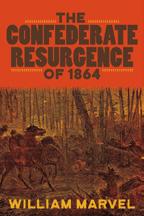
978- 0- 8071- 8243-7 Hardcover $49.95
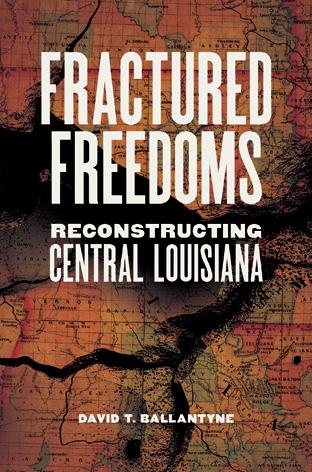
FEBRUARY 2025
324 pages, 6 x 9, 6 maps
978- 0- 8071- 8303- 8
Hardcover $45.00s, ebook available
U.S. History / Southern History / Louisiana
Conflicting Worlds: New Dimensions of the American Civil War
T. Michael Parrish, Series Editor
Fractured Freedoms Reconstructing Central Louisiana
DAVID T. BALLANTYNE
“A highly anticipated and important contribution to the scholarship on this tumultuous and contentious period in U.S. history. David T. Ballantyne offers original insights and bold conclusions that deserve careful consideration.”—John C. Rodrigue, author of Freedom’s Crescent: The Civil War and the Destruction of Slavery in the Lower Mississippi Valley
“Louisiana was at the heart of Reconstruction, and Rapides Parish and Alexandria on the Red River were at the heart of Louisiana. In Fractured Freedoms, David T. Ballantyne has thoroughly and carefully untangled the story of shifting political alignments, halting efforts toward interracial democracy, and the powerful forces arrayed against those efforts.”—Bruce E. Baker, coeditor of Remembering Reconstruction: Struggles over the Meaning of America’s Most Turbulent Era
“In this deeply researched study of central Louisiana, David T. Ballantyne reminds us of Reconstruction’s many successes—and its ongoing importance to American political history in the twenty-first century. A must-read for all scholars of Reconstruction.”—Carole Emberton, author of Beyond Redemption: Race, Violence, and the American South after the Civil War
ing on Rapides Parish in the geographic center of Louisiana, he shows how Reconstruction was not an inevitable failure but rather a political experiment—in biracial democracy, no less—that might have transformed the South. Deeply researched and elegantly written, this is a compelling and moving story.” —Adam Fairclough, author of Bulldozed and Betrayed: Louisiana and the Stolen Elections of 1876
David T. Ballantyne’s Fractured Freedoms is a riveting history of central Louisiana from the 1860s to the 1890s, focusing on majority-Black Rapides Parish during Reconstruction. Using the region as a case study, Ballantyne reveals what is, in part, a rural Reconstruction success story, emphasizing the resilience of Black politics and the persistence of significant divisions among white residents that allowed the Republican Party to gain and maintain power there. It was only with the collapse of state-level Republican power in 1877 that Democratic forces in the parish were able to dismantle local Republican political control and gradually constrict Black freedoms.
ALSO OF INTEREST
978- 0- 8071-7559- 0
Hardcover $50.00s

“In Fractured Freedoms, David T. Ballantyne has given us a thought-provoking reinterpretation of Reconstruction. Focus -
DAVID T. BALLANTYNE is a senior lecturer in American history at Keele University and the author of New Politics in the Old South: Ernest F. Hollings in the Civil Rights Era
Sisterhood of the Lost Cause
Confederate Widows in the New South
JENNIFER LYNN GROSS
“A groundbreaking study of Confederate widowhood and a ‘must have’ addition to the literature on southern women. Based on extensive archival research, Gross’s poignant reflection on countless widows’ lives maps their journeys of mourning, survival, writing, memorialization, and, eventually, their ‘reward’ in receiving a widow’s pension. A timely book that repositions Confederate widowhood and its ties to Lost Cause mythology.”—Marie S. Molloy, author of Single, White, Slaveholding Women in the Nineteenth- Century American South
“Through remarkable primary-source research that is both wide-ranging and deep, Jennifer Gross uncovers what Confederate widowhood meant to white southern women—and to a society that made them the symbolic center of its quest to restore white men’s power after the Civil War.”—Amy Murrell Taylor, author of the award- winning Embattled Freedom: Journeys through the Civil War’s Slave Refugee Camps
“Jennifer Gross offers a detailed study of Confederate widows, exploring how they grieved, coped with their loss, and why they became powerful postwar symbols of idealized white southern womanhood. This is an important book, helping to fill a surprising gap in the historiography of southern history.”—Lesley J. Gordon, author of Dread Danger: Cowardice and Combat in the American Civil War
“In Sisterhood of the Lost Cause, Jennifer Gross considers the tens of thousands of Confederate widows that constituted an imposing cohort in late nineteenth-century America. Bowed in grief, ‘manless in a patriarchal world,’ the majority negotiated a creative and calculated status as Lost Cause advocates. From the pens of best-selling authors to the petitions of husbandless wives, millions of manuscript pages left behind by these scribbling survivors are subjected to intense scrutiny. Gross’s extensive excavation illuminates white women’s critical influence—resulting in the ascendancy of Confederate memorials, so key to understanding controversies in today’s southern historical landscape.”—Catherine Clinton, author of Stepdaughters of History: Southern Women and the American Civil War
Historians have thoroughly documented the vast devastation of the Civil War. In the attention they have paid to aspects of that destruction, however, one of the most obvious ramifications appears routinely overlooked—Confederate widowhood. Jennifer Lynn Gross’s Sisterhood of the Lost Cause helps rectify that historical omission by supplying a sweeping analysis of women whose husbands perished in the war.
JENNIFER LYNN GROSS is professor of history at Jacksonville State University.
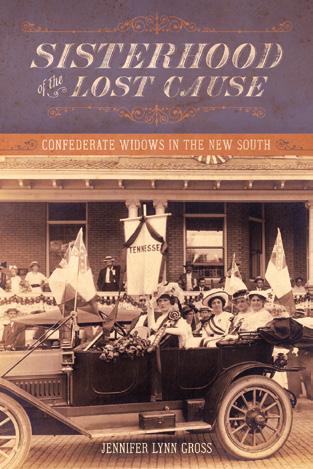
APRIL 2025
336 pages, 6 x 9, 14 halftones
978- 0- 8071- 8301- 4
Hardcover $50.00s, ebook available Civil War / U.S. History / Gender Studies / Southern History
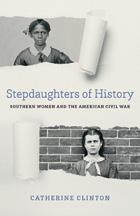
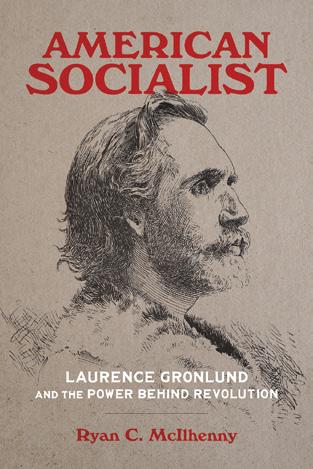
FEBRUARY 2025
296 pages, 6 x 9
978- 0- 8071- 8351- 9
Hardcover $45.00s, ebook available
U.S. History / Biography / Political Science / Religious Studies
American Socialist Laurence Gronlund and the Power behind Revolution
RYAN C. McILHENNY
ALSO OF INTEREST
978- 0- 8071-7582- 8
Hardcover $50.00s
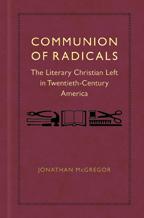
“Ryan C. McIlhenny has written one of the best intellectual biographies I have ever read. In clear, concise prose, he leads readers through the economic, political, and historical writings of Laurence Gronlund, showing us that the unkempt economist was one of the most important thinkers of the nineteenth century. Gronlund called out capitalism for robbing people of sympathy for one another, for causing people to give up on God, and for creating the stratification of great poverty and great wealth. His abiding faith in bloodless revolution broke through the polarities of the late nineteenth century, imagining a path—guided by the divine—between capitalism and anarchy. In McIlhenny’s beautiful telling, Gronlund’s vision of cooperative industry, nationalized mines, public utilities, and universal public education was much more than a political conceit. He had a spiritual vision for individual and social evolution, and convinced many Americans that they could work together without violence to forge a vastly different world.”—Janine Giordano Drake, author of The Gospel of Church: How Mainline Protestants Vilified Christian Socialism and Fractured the Labor Movement
“American socialism has always been religious, and socialist religion has always overflowed the banks of even the most justice-minded of churches. Laurence Gronlund was the theorist who made socialism truly American by tapping into its spiritual depths, and McIlhenny’s careful exegesis makes Gronlund’s vision accessible to a new generation of scholars and socialists.”—Dan McKanan, author of Prophetic Encounters: Religion and the American Radical Tradition
Ryan C. McIlhenny’s American Socialist is the first comprehensive biography of Laurence Gronlund (1844–1899), one of the nation’s most persuasive proponents of socialism. Gronlund cultivated a unique polemic against capitalism by advocating positions that synthesized Marxism with Darwinian evolution, rejected class violence, and emphasized cooperation over competition. According to McIlhenny, a belief in a divine force advancing history toward a “cooperative commonwealth” underpinned his philosophy. Gronlund’s books enjoyed a wide and dogmatic readership during the late nineteenth century, and his teachings inspired prominent Gilded Age figures, including Edward Bellamy, Leo Tolstoy, and Eugene V. Debs. American Socialist masterfully restores Gronlund to his place among the nation’s most important political thinkers.
RYAN C. M c ILHENNY is professor of liberal arts and humanities at Xing Wei College in Shanghai, China, and the author of To Preach Deliverance to the Captives: Freedom and Slavery in the Protestant Mind of George Bourne, 1780–1845.
The 1968 Florida Teachers’ Strike
Public Sector Unionism and the Fight against Sunshine State Conservatism
JODY BAXTER NOLL
“Jody Baxter Noll’s study of the 1968 Florida teachers’ strike, the first such strike in American history, is timely, engaging, and significant. . . . [this book] offers fascinating insights into the changing lives of teachers, racial tensions inside and outside the classroom, and the rising tide of conservatism.”—Gary R. Mormino, author of the awardwinning Land of Sunshine, State of Dreams: A Social History of Modern Florida
In early 1968, more than 27,000 teachers across Florida mailed their resignation letters, initiating the country’s first statewide teachers’ strike. The striking teachers fought for and won a monumental victory, improving education in the state and gaining collective bargaining rights for all public sector employees. Even as the influence of industrial labor unions decreased across the country, the Florida teachers’ strike and the spirit of teacher militancy that swept the nation during the late 1960s and 1970s demonstrate that a vibrant labor movement remained. Jody Baxter Noll’s study challenges the prevailing view of these decades as a period of decline for the American labor movement by turning the spotlight on teachers and public sector unionism.
In his examination of the 1968 strike and its aftermath, Noll illuminates the vital role of teachers in
shaping political and social policy in the United States. As a predominantly women-led workforce, teachers challenged notions of feminine passivity in their mobilization efforts and used their union to fight for gender equality. The strike also provides insight into how interracial unionism could be a potent weapon for labor movements, even in the Deep South.
In exploring the political and social factors that prompted the teachers’ strike, Noll considers Florida’s instrumental role in forming modern conservatism. Led by Republican governor Claude Kirk, the first Republican governor elected in the Deep South since Reconstruction, Florida helped to create a blueprint for Republicans to build a New Right powerhouse throughout the country. Though Florida has remained on the periphery of much scholarship on the ascendancy of the New Right, Noll demonstrates that the state more accurately reflects the nation’s political attitudes than much of the rest of the South because of its economic, racial, social, and political diversity.
JODY BAXTER NOLL is a lecturer in history at Georgia State University.

MARCH 2025
224 pages, 6 x 9, 2 maps
978- 0- 8071- 8300-7
Hardcover $45.00s, ebook available
U.S. History / Labor Studies / Southern History
Making the Modern South
David Goldfield, Series Editor
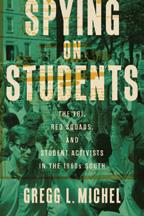
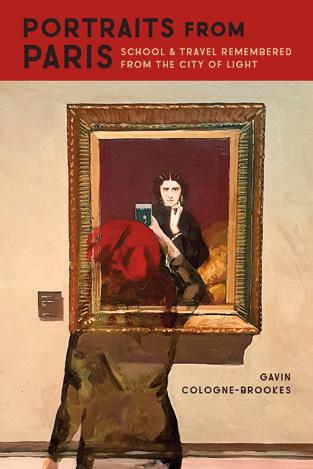
MAY 2025
272 pages, 6 x 9, 2 halftones
978- 0- 8071- 8395-3
Paperback $29.95, ebook available LSU Press Paperback Original Memoir
Portraits from Paris
School and Travel Remembered from the City of Light
GAVIN COLOGNE-BROOKES
“With his astonishing powers of recall, Gavin CologneBrookes packs the schooldays sections of Portraits from Paris with insight and accurate observation. . . . An engaging and uplifting account of a life in search of liberty.”
—Richard Beard, author of The Day That Went Missing and Sad Little Men
“Cologne-Brookes has lived a remarkable life and is a gifted storyteller. The writing thrums with energy and color and humor. . . . The whole insightful performance is embedded to a quite extraordinary degree in artistic and literary lore. Stunning.”—Jonathan Carr, author of Make Me a City
“The brutality of school opens the reader’s heart (and eyes) to the brutality that lies behind so much of the art that Cologne- Brookes observes. . . . A powerful memoir that dramatizes a dynamic interplay between art, temporality, and the self.”—Mimi Thebo, author of Dreaming the Bear
“A beautifully written painter’s portrait of surviving boarding school and finding validation in art. This book is a touching and evocative journey that takes in some of the world’s great artworks, described with an artist’s palette.”
—Robert Verkaik, author of Posh Boys and The Traitor of Colditz
ALSO OF INTEREST
978- 0- 8071-7859-1
Paperback $35.00s
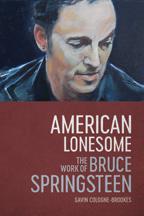
Written between 2019 and 2024, Portraits from Paris is a novelized memoir of a boarding-school childhood in 1970s England, interspersed with journalistic sketches of cities as diverse as Montevideo, Kolkata, and Moscow that draw from the travel-studded years between school and the author’s move to France. Along the way, Gavin Cologne-Brookes reflects on historic events ranging from Brexit, the COVID-19 pandemic, and the Russian invasion of Ukraine to the death of the queen, the restoration of Notre-Dame, and the Paris Olympics. Binding the personal and political together is an oil painter’s rendering of his creative evolution, building with careful brushwork upon the tints of the craft’s discovery in adolescence to arrive at the nuanced hues of artistic maturity.
GAVIN COLOGNE- BROOKES is professor emeritus at Bath Spa University. Educated in England and the United States, he moved to Paris in 2019 to pursue his passion for oil painting. His portraits of Arthur Miller, William Styron, Joyce Carol Oates, and Bruce Springsteen are on loan display at the Rothermere American Institute, University of Oxford.
Frank Zappa’s America
BRADLEY MORGAN
From his early albums with the Mothers of Invention, Frank Zappa established a reputation as a musical genius who pushed the limits of culture throughout the 1960s and 1970s, experimenting with a blend of genres in innovative and unheard-of ways. Not only did his exploratory styles challenge the expectations of what popular music could sound like, but his prolific creative endeavors also shaped how audiences thought about the freedom of artistic expression.
In Frank Zappa’s America, Bradley Morgan casts the artist as an often-misunderstood figure who critiqued the actions of religious and political groups promoting a predominantly white, Christian vision of the United States. A controversial and provocative satirist, often criticized for the shocking subject matter of his songs, Zappa provided social commentary throughout his career that spoke truth to power about the nefarious institutions operating in the lives of everyday Americans. Beginning in the late 1970s, his music frequently addressed the rise of extremist religious influence in American politics, specifically white Christian nationalism.
Despite commercial and critical pressure, Zappa refused to waver in his support for free speech during the era of Reagan and MTV, including his pointed testimony before the U.S. Senate at the Parents Music
Resource Center (PMRC) hearings. Throughout the 1980s, and until his death in 1993, Zappa crafted his art form to advocate for political engagement, the security of individual liberties, and the advancement of education. Music became his platform to convey progressive views promoting the rights of marginalized communities most at risk in a society governed by the principles of what he perceived as Christian radicalism.
Frank Zappa’s America examines the musician’s messaging through song, tracing the means by which Zappa created passionate, at times troubling, art that combats conservativism in its many manifestations. For readers in the twenty-first century, his music and public advocacy demonstrate the need to preserve democracy and the voices that uphold it.
BRADLEY MORGAN , a media arts professional based in Chicago, is the author of U2’s The Joshua Tree: Planting Roots in Mythic America. He manages partnerships for CHIRP Radio 107.1 FM and directs the station’s music film festival. Morgan also interviews authors of music and pop culture books for the New Books Network podcast. He enjoys listening to records with his ginger cat Rusty.
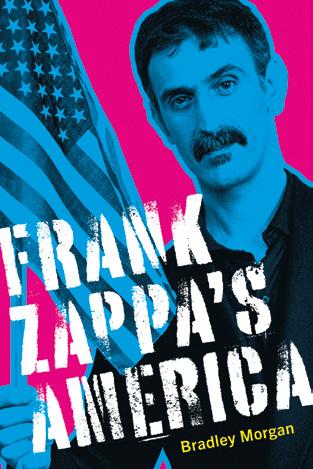
JUNE 2025
304 pages, 6 x 9, 3 halftones
978- 0- 8071- 8392-2
Hardcover $39.95, ebook available Music Studies
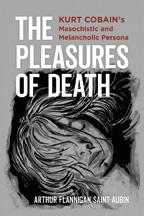

MAY 2025
264 pages, 6 x 9
978- 0- 8071- 8394- 6, Hardcover $69.95
978- 0- 8071- 8403- 5, Paperback $34.95
ebook available
Literary Studies
ALSO OF INTEREST
978- 0- 8071- 8115-7
Hardcover $49.95

Afterlife
The Strange Fate of Literary Remains
DAVID WYATT
“An excellent book. One feels as if one is in the presence of a master teacher, a talented lecturer, a first- rate storyteller.”—James L. W. West III, author of Business Is Good: F. Scott Fitzgerald, Professional Writer and general editor of the Cambridge Edition of the Works of F. Scott Fitzgerald
Afterlife: The Strange Fate of Literary Remains explores what happens to a body of work left unpublished or unfinished at the time of a writer’s death. In nine chapters, David Wyatt tells the story of the “afterlife” of texts by Shakespeare, William Wordsworth, Charles Dickens, Harriet Jacobs, Emily Dickinson, William Faulkner, Sylvia Plath, Ernest Hemingway, and Ralph Ellison—and of the improbable and unpredictable ways in which literature that might never have seen publication managed to end up on the printed page.
Posthumously edited texts raise important issues about the meaning and shape of a literary career. How is one to assess the arc of Ellison’s achievement when, after his endlessly reworked second novel finally made it into print in 1999, it was then superseded, in 2010, by another version? Meanwhile, the publication of four Hemingway books after the author’s death undid any notion that the writer suffered some
sort of decline late in life, and the gender-bending experiments in The Garden of Eden cast a revisionary light back on what had become a deeply reductive belief in the Hemingway Code. While judgments about these writings may begin as technical matters, Wyatt shows that they eventually become aesthetic and, finally, ethical considerations. Despite the difficulties involved, such evaluations continue to be made and to produce the editions that teachers and readers are required to choose among.
Throughout Afterlife, Wyatt stresses the attentiveness needed in the editing of posthumous texts: being mindful to honor an author’s literary remains by providing an answerable reading of them, while also caring enough about the work left behind to take a position on the printed form it might best take or, if such a conclusion feels impossible, to give a responsible account of why it is out of reach.
DAVID WYATT is professor emeritus of English at the University of Maryland, where he was a Distinguished Scholar-Teacher. His previous books include Five Fires: Race, Catastrophe, and the Shaping of California and Hemingway, Style, and the Art of Emotion. He lives in Charlottesville, Virginia.
Southerners Acting Southern
On Celebrities and Their Star Personas in the Imagined South
TISON PUGH
What is the difference between a star born in the South and a “southern star”? In Southerners Acting Southern, Tison Pugh answers this intriguing question, pondering the ways in which some performers from the South metamorphose into southern stars by accentuating their geographic and cultural roots as key aspects of their star personas.
Many celebrities, particularly actors, seek to transcend their hometown roots in favor of achieving an “all-American” appeal, but some stars born in the South build their national and international fan base by emphasizing the southern aspects of their biography and by leaning into regional clichés and stereotypes that percolate throughout the U.S. cultural imaginary. In turn, some southern stars trot out the region’s hoariest tropes of fading belles, gullible country rubes, and the succors of southern hospitality only to reveal the shallowness of these stereotypes and of their celebrity personas as well. Covering more than one hundred years of cultural history, Southerners Acting Southern allows readers to gauge the South’s often-reluctant progress into modernity, including discussions on the intersection of race and celebrity for the region’s Black stars and its increasing, if hesi-
tant, embrace of queer ones. Chapters feature a wideranging selection of southern celebrities, including Louis Armstrong, Truman Capote, Elvis Presley, Tennessee Williams, Andy Griffith, Tina Turner, Dolly Parton, Tom Petty, Gloria Estefan, Oprah Winfrey, Reese Witherspoon, Jenna Bush Hager, Ellen DeGeneres, Tyler Perry, Matthew McConaughey, Aziz Ansari, and Miley Cyrus.
Southerners Acting Southern moves from past to present, from musicians to media personalities, discerning the ways in which southernness contributes to the building of personal celebrity. Altogether, this luminous work of cultural criticism reveals that southern stargazing, as much as it might initially appear a flighty pastime of overzealous fans, divulges deeper truths about the South, and the United States as a whole, that might otherwise pass unnoticed.
TISON PUGH is Pegasus Professor of English at the University of Central Florida. He is the author or editor of more than two dozen books, including Truman Capote: A Literary Life at the Movies and Precious Perversions: Humor, Homosexuality, and the Southern Literary Canon.
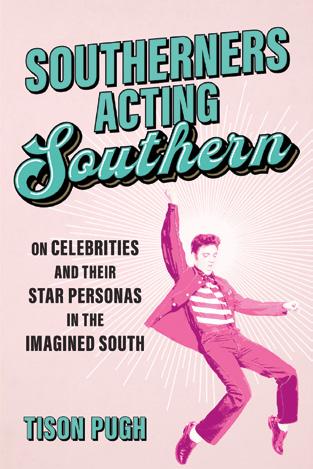
APRIL 2025
276 pages, 6 x 9, 18 halftones
978- 0- 8071- 8398- 4, Hardcover $69.95
978- 0- 8071- 8401-1, Paperback $34.95
ebook available
Southern Studies / Literary Studies
Southern Literary Studies
Scott Romine, Series Editor
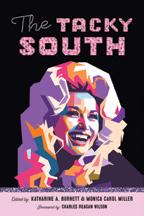
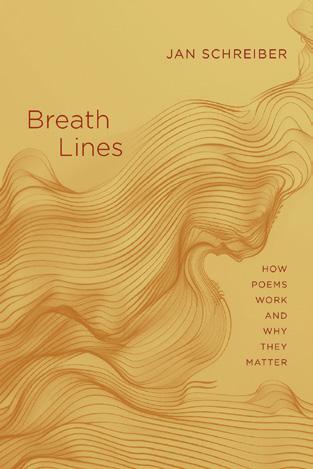
MAY 2025
228 pages, 6 x 9
978- 0- 8071- 8393- 9, Hardcover $60.00s
978- 0- 8071- 8402- 8, Paperback $30.00s ebook available
Literary Studies / Poetry Criticism
Breath Lines How Poems Work and Why They Matter
JAN SCHREIBER
ALSO OF INTEREST
978- 0- 8071- 8090-7
Paperback $34.95
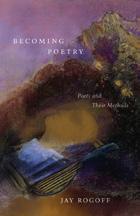
Breath Lines takes a fresh and down-to-earth approach to encounters with poetry. In these accessible, non-technical essays, Jan Schreiber offers insightful strategies for reading and understanding works that many people have found challenging. The essays address critical areas of poetic craft and interpretation: the content of poems, including narrative techniques and the voices a poet creates; the character and power of verse lines and the problems attending the translation of metrical poems; challenges of interpretation, including complex philosophies and obscure references; and a look at the future of the art, hinted by the competing styles and allegiances of contemporary writers.
Each essay offers pertinent verse examples to illustrate metrical, rhetorical, and stylistic issues. Schreiber’s commentaries explain how a reader’s careful attention can be rewarded with a deeper understanding
of the multiple meanings embedded in apparently simple poems—and how readers can thereby experience an emotional impact not always perceived on a first reading.
Designed for writers, students, and passionate readers, Breath Lines: How Poems Work and Why They Matter offers guidance into some of the art form’s more arcane mysteries, written by a distinguished poet and critic.
JAN SCHREIBER is a poet, translator, and prolific writer about poetry. His previous books include Sparring with the Sun (criticism), Peccadilloes and Bay Leaves (poetry), and Poems of Paul Valéry (translation). An advisory editor of Think journal, he teaches in the BOLLI program at Brandeis University and runs The Critical Path, an annual symposium on poetry criticism.
A New Way of Seeing
Distance and Traumatic Memory in the Poetry of World War II
MICHAEL SARNOWSKI
“A New Way of Seeing is a well-researched and compelling defense of the poets of World War II. It is everything that their subtle and stylistically diverse poems deserve. With empathetic scrutiny, Michael Sarnowski proves that acknowledging this generation’s traumatic vision enriches our understanding of the entire global conflict that affected millions and reshaped the world.”—Diederik Oostdijk, author of Among the Nightmare Fighters: American Poets of World War II
“With his thorough, thoughtful, and meticulous study of five World War II poets, Sarnowski adroitly fills a major gap in English and American literary scholarship. A fascinating and important contribution to understanding how war experience gets translated onto poetry.”—Agnieszka Soltysik Monnet, author of Combat Death in Contemporary American Culture: Popular Cultural Conceptions of War since World War II
A New Way of Seeing considers the poetry of five writers—Louis Simpson, Keith Douglas, Richard Hugo, Howard Nemerov, and Randall Jarrell— whose work draws on their activities as soldiers in World War II. Basing his examination on extensive primary-source research, Michael Sarnowski identifies distance, both literal and figurative, and traumatic memory as two interconnected elements of
how these poets internalized the war and made sense of the events they witnessed.
The book is structured on a gradient related to each poet’s proximity to combat, as the chapters in turn focus on an infantryman (Simpson), a tank commander (Douglas), a bombardier (Hugo), a pilot (Nemerov), and a stateside flight instructor (Jarrell). Sarnowski relies on a wealth of archival material overlooked by previous scholarship, including poem drafts, correspondence, flight logs, and personal belongings. The conclusion revisits notions of legacy and representation by assessing factors that contributed to the early labeling of World War II soldiers as a “Silent Generation,” in contrast to the outpouring of poetry published during and following the First World War.
By exploring how poets processed their wartime experiences, A New Way of Seeing offers a stark reminder of why it remains vital to recognize the physical, mental, and psychological consequences endured by veterans.
MICHAEL SARNOWSKI is a writer and educator who has taught at universities in the U.S. and the U.K. Originally from Rochester, New York, he lives in Liverpool, England.
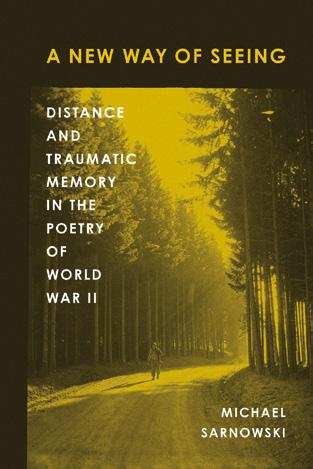
JUNE 2025
282 pages, 6 x 9
978- 0- 8071- 8399-1
Hardcover $45.00s, ebook available Literary Studies / WWII
American Wars and Popular Culture
Matthew Christopher Hulbert and Matthew E. Stanley, Series Editors
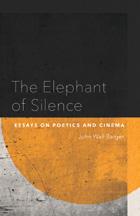
ALSO OF INTEREST
978- 0- 8071- 8157-7
Paperback $29.95
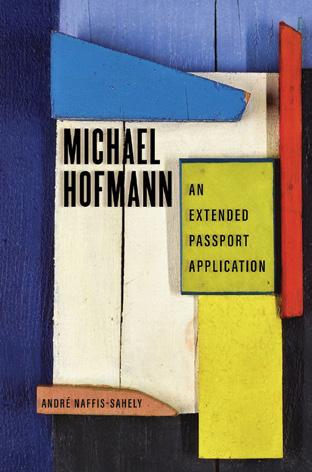
Michael Hofmann
An Extended Passport Application
ANDRÉ NAFFIS-SAHELY
MARCH 2025
224 pages, 6 x 9
978- 0- 8071- 8397-7
Hardcover $40.00s, ebook available Literary Studies
ALSO OF INTEREST
978- 0- 8071-8256-7
Hardcover $39.95
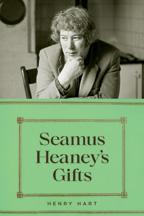
For more than four decades, Michael Hofmann has made significant contributions to the literary cultures of Germany, the United Kingdom, and the United States, ranging from his original poetry to translations of Kafka, Brecht, Hans Fallada, and Joseph Roth, among others. In the first book-length study of this iconic figure, poet and translator André Naffis-Sahely surveys Hofmann’s life and work with an emphasis on his poetry, situating him within the “New Generation” of writers, including Carol Ann Duffy, Simon Armitage, and Don Paterson, who rose to prominence in Britain between the mid-1980s and the early 1990s.
Reaffirming Hofmann’s central place in contemporary literature, Naffis-Sahely presents the author’s oeuvre as an “extended passport application,” as the poet’s unusually peripatetic nature emerges as a poetic means of questioning various modes of authority. Naffis-Sahely examines Hofmann’s chief literary influences, revealing that while he was heavily inspired by the example of Robert Lowell’s confessional model, his work was equally shaped by other poetic mentors, including Ian Hamilton and Hugo Williams. In turn, Hofmann’s five published volumes of poetry—from his debut Nights in the Iron Hotel to his latest collec-
tion, One Lark, One Horse, published after a silence of two decades—chronicle the poet’s sentimental and intellectual education from adolescence to middle age, as well as the traumatic emotional experiences that arose from his relationship with his father, the German novelist Gert Hofmann, whom the poet portrayed to shocking effect in his breakthrough second collection, Acrimony. Naffis-Sahely concludes his study with an analysis of the influence Hofmann has exerted on other poets, testifying to the value and importance of his work in the contemporary British tradition, followed by an extensive interview reflecting on his career.
ANDRÉ NAFFIS- SAHELY is the author of The Promised Land: Poems from Itinerant Life and High Desert, as well as the editor of The Heart of a Stranger: An Anthology of Exile Literature. He has translated more than twenty volumes of fiction, poetry, and nonfiction, including works by Honoré de Balzac, Émile Zola, Abdellatif Laâbi, Ribka Sibhatu, and Tahar Ben Jelloun. He is an assistant professor of English, French, and Italian at the University of California, Davis.
Living Name
Essays on American Poets
MARK HALLIDAY
“For two decades now, I have considered Mark Halliday to be not merely a first-rate poet, but also perhaps the best writer about contemporary poetry that we have in this country. His prose is graceful, elegant, and inviting. His opinions, whether one agrees or not, are invariably invigorating and intelligent. He writes with the attention of someone who has made a lifetime’s study not just of the craft of poetry but of its sources, purposes, and value to us.”—Kevin Prufer, author of The Fears
“Most of the pieces in Living Name are appreciations—not, commendably, unreserved ones—of some of Halliday’s favorite poets. Close reading abounds: penetrating, sensitive, often revelatory. Every essay in the book is graced with Halliday’s signature virtues: jargon-free eloquence, extreme sanity, humor, intelligence, self-awareness (often manifested in a willingness to qualify his own judgments), a generous sympathy for poetics (most notably Dean Young’s) that differ from his own, all underpinned by a conception and exaltation of poetry as an art in service to humanity.”—Daniel Brown, author of Subjects in Poetry
“For Halliday, poems are frequently engaged in preserving what is past or passing; so too, his criticism recalls these poets to us with renewed force and a deepened appreciation.
In the end, it is Halliday’s ‘spirit of caring attentiveness’ (a quality he finds in Frank O’Hara) that restores these poets to our eyes and ears in all their lively, teeming, and enduring particulars. Acute, humane, and free of cant, this is first-rate criticism.”—David Yezzi, author of Late Romance: Anthony Hecht—A Poet’s Life
In Living Name, poet and critic Mark Halliday turns his attention to the work of poets who interest him because they create convincing voices of people dealing with everyday realities. The poets he considers in these essays include Walt Whitman, Kenneth Fearing, Kenneth Koch, Robert Pinsky, Rachel Wetzsteon, Tony Hoagland, Claire Bateman, and Dean Young.
MARK HALLIDAY is the author of seven collections of poems, most recently Losers Dream On. His critical works include Stevens and the Interpersonal and, with Allen Grossman, The Sighted Singer: Two Works on Poetry for Readers and Writers. He is the winner of a National Poetry Series prize, the Juniper Prize in Poetry, and a Guggenheim Fellowship, among other honors. Halliday is Distinguished Professor of English at Ohio University.
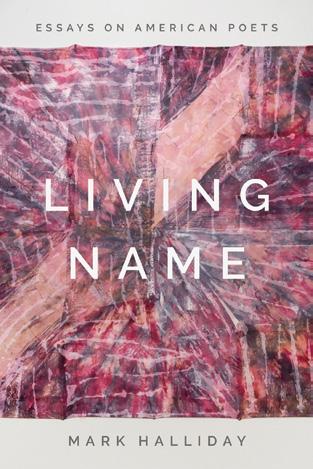
MARCH 2025
336 pages, 6 x 9
978- 0- 8071- 8310- 6, Hardcover $70.00s
978- 0- 8071- 8400- 4, Paperback $35.00s ebook available
Literary Studies / Poetry Criticism
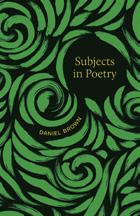
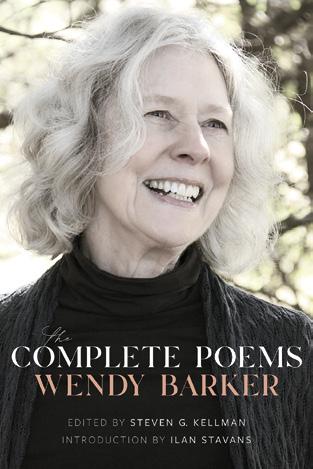
FEBRUARY 2025
584 pages, 6 x 9
978- 0- 8071- 8391- 5
Hardcover $49.95, ebook available Poetry
The Complete Poems
WENDY BARKER
Edited by STEVEN G. KELLMAN
Introduction by ILAN STAVANS
ALSO OF INTEREST
978- 0- 8071- 8031- 0
Paperback $29.95
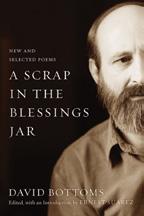
“Devoted to precision of craft as well as greatest heart, Wendy Barker wrote with immense care and affection for this world, her students, language, and the bright, unexpected hope that well- shaped poetry offers.” —Naomi Shihab Nye
“These poems collect readily into a relaxed but constant liminality, all moments tilted toward joy but with an unnerving undercurrent of what it has taken to earn their modicum of happiness.”—Alberto Ríos
“Barker’s wide-ranging, keenly observed poems enable us to see her life and times more fully. They are a sustained literary achievement, a hard-won clarification and expansion of experience.”—Edward Hirsch
Spanning more than three decades of a life well-lived, Wendy Barker’s collected poems convey her encounters with the natural world, reactions to contemporary social problems, and experiences in high school and college classrooms. Organized chronologically, this volume enables readers to marvel at the growth of a singular sensibility attentive to the wonders of love and the anguish of mortality.
WENDY BARKER published fifteen collections of verse. Her poems appeared regularly in Poetry magazine, the Southern Review, and other literary journals. At the time of her death in 2023, she was poet-inresidence and the Pearl LeWinn Endowed Chair in Creative Writing at the University of Texas at San Antonio, where she taught since 1982.
STEVEN G. KELLMAN is professor of comparative literature and the Jack and Laura Richmond Endowed Faculty Fellow at the University of Texas at San Antonio.
ILAN STAVANS is the Lewis-Sebring Professor of Humanities and Latin American and Latino Culture at Amherst College, the publisher of Restless Books, and a consultant to the Oxford English Dictionary.
Closeted Indigo
It’s the full moon we notice, not the night sky. The white cat, not the shadowed grass.
Almost invisible, slipped between blue and violet: Newton sensed it was there.
A color is only waves, motion we can’t hear. Veins near the skin run blue, bleed red.
We barely see the blueberries plucked in the night silence when a loon cries on the lake.
There are ways of bludgeoning so the bruises don’t show, closets with walls no one can see.
It’s the light glinting on leaf shapes that dazzles us, the shimmers on the river.
What color is the wail of a horn uncoiled, a saxophone’s moan through the door?
Naked Ladies
New and Selected Poems
JULIE KANE
PRAISE FOR JULIE KANE
“Those who have seen Kane perform her poems . . . will have enjoyed her girlish, mischievous, and charmingly selfdeprecating presence onstage. But to be alone in a room with the poems is a rather different experience—you realize the voice has more of the sass and wisecracks of a film noir dame—smart, unsentimental, funny, sexually frank, alternately vulnerable and dangerous.” —A. E. Stallings, Light magazine
“Kane is a boomers’ Edna St. Vincent Millay.” —Natalie Jacobson McCracken, Bostonia magazine
“She’s a wonderful formalist, but there’s a touch of the anarchist in every line.”—Mary A. McCay, New Orleans Times-Picayune
“Wickedly clever Julie Kane is our twenty-first-century Dorothy Parker.”—Molly Peacock
“The physical in Kane’s poetry is so intensely, humanly physical that it shines, a shining that attracts the feelings and lights the mind.”—A. R. Ammons
Capturing the breadth of Julie Kane’s poetics across nearly four decades—formalist and neo-confessional, steeped in both Boston Irish-American and New Orleans cultures—Naked Ladies displays the full range and achievement of her work. Gathered here in one volume are selections from Kane’s five previous collections, including her long-out-of-print first book and her subsequent winners of the National Poetry
Series and Donald Justice Poetry Prize. Readers will also find a generous selection of new and previously uncollected work. The title of this milestone collection acknowledges Kane’s place in the tradition of women confessional poets, evokes the nickname of a common Louisiana flower, and nods to the honesty and frankness that characterize her poems’ speakers.
A past Louisiana poet laureate and Fulbright scholar, JULIE KANE is professor emerita at Northwestern State University, currently teaching in the low-residency MFA program at Western Colorado University.
Used Book
What luck—an open bookstore up ahead as rain lashed awnings over Royal Street, and then to find the books were secondhand, with one whole wall assigned to poetry; and then, as if that wasn’t luck enough, to find, between Jarrell and Weldon Kees, the blue-on-cream, familiar backbone of my chapbook, out of print since ’83— its cover very slightly coffee-stained, but aging (all in all) no worse than flesh through all those cycles of the seasons since its publication by a London press. Then, out of luck, I read the name inside: The man I thought would love me till I died.
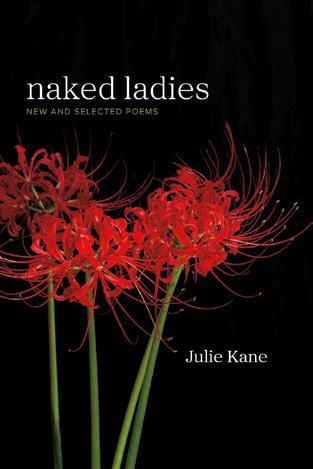
FEBRUARY 2025
162 pages, 6 x 9
978- 0- 8071- 8374- 8
Paperback $25.95, ebook available LSU Press Paperback Original Poetry
Southern Messenger Poets Dave Smith, Series Editor
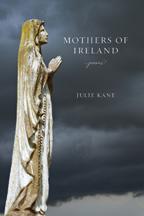
ALSO OF INTEREST
978- 0- 8071-7075- 5
Paperback $19.95
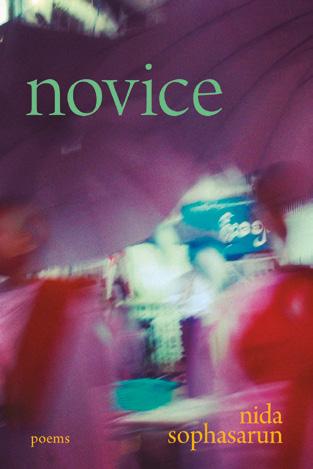
APRIL 2025
84 pages, 6 x 9
978- 0- 8071- 8390- 8
Paperback $20.95, ebook available
LSU Press Paperback Original Poetry
Sewanee Poetry
Wyatt Prunty and Leigh Anne Couch, Series Editors
Novice Poems
NIDA SOPHASARUN
ALSO OF INTEREST
978- 0- 8071-8254-3
Paperback $19.95
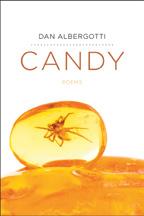
“Bodies abound in Novice because living abounds, and what is rare and exquisite about this first book of poems is the startling wisdom Nida Sophasarun summons from a life of wandering and questioning.”—Jennifer Chang
“Novice is an astonishment. I know of no other debut collection with this much ambition, beauty, and poise. . . . Rigorous, lush, and wry, these poems are fueled by the most poignant forms of wanderlust and desire. I would follow them anywhere.”—Cecily Parks
“In the sprightly hands of Sophasarun, a poem is floral, existential, a ’90s indie rockstar, a feathered emissary, a eulogy. Her work is cinematic, like memory, sensory in the tangible details.”—Joseph O. Legaspi
How close can a person come to home when their family has deserted it? Guided by this question, the poems in Nida Sophasarun’s Novice traverse natural, animal, and dream worlds, seeking intimacy in a snake coming in from the rain, a mother’s body imagined as a house, and the moon serving as both the missing piece and the linchpin in a night sky. Organized by tropical seasons and unfolding in Asia and the American South, Novice proposes that home is monumental and ruined, remembered and forgotten, local and diffuse, peopled and haunted.
NIDA SOPHASARUN is from Atlanta, Georgia, and holds degrees from Wellesley College and the Johns Hopkins Writing Seminars. She has lived and worked in Bulgaria, China, Hong Kong, Japan, Myanmar, and Taiwan. Her poems appear in New England Review, Prairie Schooner, 32 Poems, wildness, and elsewhere.
The novices giggle and cluster. They accept—bend, they say— and with each vassa season they grow another year older.
By this measure, I am zero.
My car stalls. It creaks and rocks from the current, and I assess what I missed (crows flying low and ants hauling larvae across my doorstep), as if I could prepare for the next rain and be better at waking from my soft-focus dream of the jungle and meet crisis like an old, rowdy friend and expect certain violence from the bone sky bearing down and the slurry of leaves smearing the lines. So when I lay eyes on something I buried, I may not die to see it unearthed, shiny and snaking around my legs. So I may drink without drowning and live through something. And be unafraid.
—from “Vassa Season”
Young Woman with a Cane Poems
REGINALD GIBBONS
“Young Woman with a Cane brings man’s manipulated world to the fore. Gibbons’s poems call me to visit an empathic mind upon land that is both marveled and misused as the titular poem mulls, ‘If only we could ask children now for future forgiveness.’”—CM Burroughs
“These poems, again and again, renew the soul in its attentiveness and gratitude.”—Brooks Haxton
“Reginald Gibbons has always been a most transcendent writer, heartening us mightily through his acute perceptions and graceful ways of saying. His voice strengthens a reader’s own sense of belonging on the earth.”—Naomi Shihab Nye
“Make no mistake, Gibbons’s grasp of form is masterful, and his intimate nod to a rich classical tradition well-earned and finely presented, but this is also a wildly experimental book that forces poetry to do things and to share insights into who we are nowhere else available in poetry.”—Bruce Weigl
“Gibbons is also an accomplished translator, and his gift in these original poems that move through time and cultures is to translate into the present the living energy that continues to flow from the past. It is an interplay that has become a hallmark of his mature style.”—Stuart Dybek
In language intensified by strong rhythms and bounteous vocabulary, Reginald Gibbons’s Young Woman with a Cane ranges from nature and ecological crises to human conflicts of migration, self-determination, ancient war, and the corruption of political mores.
REGINALD GIBBONS is the author of fourteen books of poems, including Creatures of a Day, a finalist for the National Book Award. He has also published volumes of fiction, essays, and translations. A native of Texas, he now lives in Evanston, Illinois, where he is the Frances Hooper Professor Emeritus in the Arts and Humanities at Northwestern University.
Wooden canoes and paddles— peace, silence. A boat shed on the green riverbank and three weathered cabins—like precious toys made by practiced hands . . .
A small craft is what I too have, that can float on a voice or on paper, whether I scribe it or sing it (and in any key or weather, all alone or with friends, or new strangers). There’s a short wooden dock, too, and on the other side of this current—slow, steady, dark—more of the whole world.
—from “Slender River”
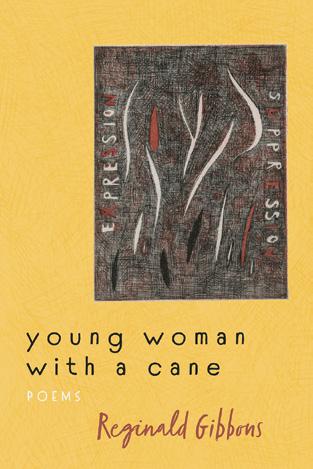
MARCH 2025
96 pages, 6 x 9, 4 halftones
978- 0- 8071- 8376-2
Paperback $21.95, ebook available LSU Press Paperback Original Poetry
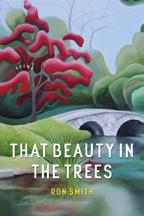
ALSO OF INTEREST
978- 0- 8071-7798-3
Paperback $21.95
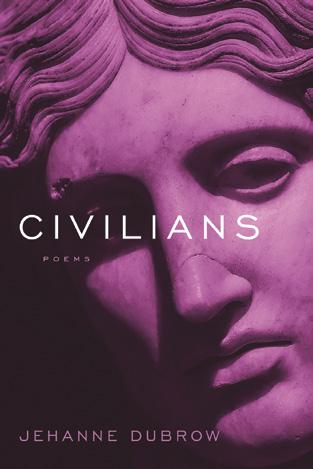
FEBRUARY 2025
78 pages, 6 x 9
978- 0- 8071- 8372- 4
Paperback $20.95, ebook available LSU Press Paperback Original Poetry
Civilians Poems
JEHANNE DUBROW
ALSO OF INTEREST
978- 0- 8071-7412- 8
Paperback $19.95
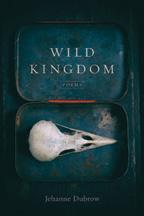
“Jehanne Dubrow’s Civilians embraces war and its consequences from a different kind of front line than we’re used to seeing in books about armed conflict. The spouses and families of warriors from both sides were slowly forced into their own quiet cells of trauma, mostly forgotten, until now. These poems are ruggedly beautiful and enduring.”—Bruce Weigl
“At its core, Civilians is a study of love and intimacy, separation and distance. Dubrow has written a collection that adds to the literature and provides us all a clear-eyed vision into the workings of the human heart.”—Brian Turner
“Drawing on myth—the poems invoke, for instance, Penelope and Andromache to make sense of contemporary war—Dubrow probes, with urgent and stunning imagery, how wars invade the domestic spaces of military spouses and, as one speaker puts it, that fragile ‘little nation / of our marriage.’ This is a brilliant, unforgettable book from one of today’s most important American poets.”—Hugh Martin
The final volume in Jehanne Dubrow’s groundbreaking trilogy about the experience of being a modern military spouse, Civilians examines a significant moment of transformation in a military marriage: the shift from active-duty service to civilian life. Blending formal and free verse, with poems exploring both the historical and the personal, Dubrow offers readers a candid look at the experience of watching a loved one adjust to homelife after a career of military service.
JEHANNE DUBROW is the author of nine poetry collections and three books of nonfiction, including, most recently, Exhibitions: Essays on Art & Atrocity. She is professor of creative writing at the University of North Texas.
Trench Whistle
I call my dogs with it, a blast of sound that summons them from far across the grass, and they come running at the trill, each hound a blur of lead-gray fur, a yipping mass. They only know the pleasures of the lawn, the clovered fragrances. This cry I make is like a strident bird that’s quickly gone, the branch now bare, the air that seems to shake with what was there before. They can’t conceive: this whistle mobilized whole companies of men. Its voice was sharp enough to cleave the clamor of the front, the batteries of mortar rounds. I call, and each dog runs, unhunted by the terror of the guns.
An Arm Fixed to a Wing Poems
OLIVIA CLARE FRIEDMAN
“Reading Olivia Clare Friedman’s An Arm Fixed to a Wing is like wading through a luscious dream. These poems seem to exist in that gauzy space between sleep and waking, where ‘stars [look] liquid’ and familiar rooms are filled with strangers—and where mystery reigns. Friedman’s poems fold the ordinary realities of domestic life into the unknown of the self, of memory and creation.”—Marianne Chan
“Friedman plays uncanny music on the taut, frayed thread of human connection, ‘hearing in each note the / opposite silence.’ Birth and death sit beside each other in these exquisite rooms, breathing the same air, listening to the same song of ache: our desire to remember and be remembered, our need to see and be seen.”—Nick Lantz
“ An Arm Fixed to a Wing delights in discombobulation, makes of us ‘a hand struck through [a] thought.’ It contains some of the darkness of Mark Strand, the distance of Emily Dickinson. These radically archetypal poems, were it not for their cameras, could live in any century, refusing anachronism. They are supremely individual, supremely social. What a rare pleasure to absorb these searching intuitions that become, for a dazzling moment, our own.”—Angela Ball
The poems in An Arm Fixed to a Wing explore themes of nostalgia, perspective, and motherhood. Olivia Clare Friedman’s verses seek the spiritual in the everyday, the divine wing fastened to an earthly arm.
OLIVIA CLARE FRIEDMAN is the author of a novel, Here Lies, a short story collection, Disasters in the First World, and a book of poems, The 26-Hour Day. Her fiction and poetry have appeared in Paris Review, The Atlantic, and elsewhere. She is director of the Center for Writers at the University of Southern Mississippi.
Up
I walk a road where each raindrop, a grace note, runs the orange-scarlet stem to the tips of these diamond-pointed, downward leaves. I walk a road of shaking staccato, swaying, still trees bowing a little, clouds corresponding to none of these, and I’m led to a man, not singing, writing, a flower fastened to his pen, but how do I speak, how to ask him if his romanticism is self-conscious and/or bold, ask him to walk me back up the Eurydicean road—if I speak, nothing answers; if he looks at me, I’ve left.
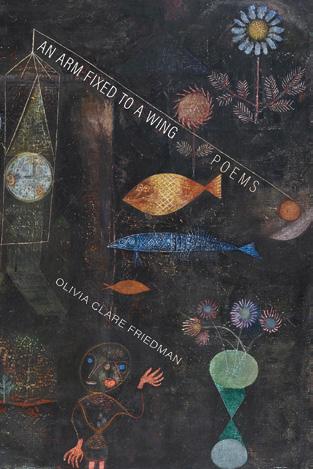
FEBRUARY 2025
72 pages, 6 x 9
978- 0- 8071- 8373-1
Paperback $19.95, ebook available LSU Press Paperback Original Poetry
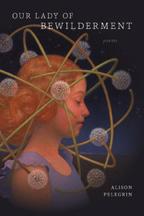
ALSO OF
978- 0- 8071-7679- 5
Paperback $20.95

MARCH 2025
102 pages, 6 x 9
978- 0- 8071- 8396- 0
Paperback $21.95, ebook available LSU Press Paperback Original Poetry
Still on Earth Poems
DAVID ROMTVEDT
ALSO OF INTEREST
978- 0- 8071-7399-2
Paperback $21.95
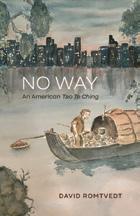
“David Romtvedt’s particular alchemy is to embody his poems fully in the senses even as they draw on an ethereal oneness that finds as much room in the firmament for our absurdities as for our graces.”—Teresa Jordan
“The poems in Still on Earth are deeply serious yet cheerily absurdist. . . . Clear and straightforward, Romtvedt’s poems are filled with surprises, with undercurrents rising to the surface.”—Mary Swander
“Romtvedt renders encounters—whether alien, angelic, or everyday—in a finely tuned voice that is unassuming but incisive, and always profoundly moving. Still on Earth opens splendidly with ‘Interstellar’ being the best poem about aliens and French-speaking dogs I’ve seen in a long time.”—William Wenthe
plainspoken and immediate poems probe the mysterious purpose of our stay on earth with humor, candor, and grace.
DAVID ROMTVEDT’s recent books of poetry include No Way: An American “Tao Te Ching, ” a finalist for the High Plains Book Award, and Dilemmas of the Angels. A winner of the National Poetry Series, Romtvedt has received fellowships from the National Endowment for the Arts and the Wyoming Arts Council. For seven years, he served as Wyoming’s poet laureate.
Running Away
I found a boat tied up at the water’s edge, rocking, rope frayed, oars banging in their locks.
At home, you never knew what might happen. A surprise a minute, they say.
—Robert Wrigley
“Romtvedt’s subjects are big and significant—mortality, love, wonder, fear, the enormous and self-evident mystery that is time. But he speaks of and to these immemorial poetic themes in exceptionally lucid and yet sidelong terms, because he knows—he says so, directly—that ‘the universe belongs to those who dance,’ and in speaking so he makes us hope, and believe, that that is true.”
With Still on Earth, David Romtvedt addresses the sometimes disconcerting, sometimes thrilling, and, if we accept the writer’s premise, always wacky crossings experienced by figures identified as the person, the poet, and the angel. All three intersect and collide with the society and culture within which they exist, prompting speculation that uncertainty could be preferable to knowing. Romtvedt’s delightfully
In the distance, dark clouds, no trace of the other shore. It might have been wise to have brought a compass and life jacket, to have packed a lunch.
Turned Earth
Poems
BRAD RICHARD
“Brad Richard is not only a poet but a master gardener. In these poems, he turns to the earth—whether he is tending his own stubborn, lush garden in New Orleans, rooting through a childhood that reblooms in memory, laying to rest his lost mother, or bringing into his landscape the labor of love. Richard gives us an earth disturbed but fertile, vulnerable but verdant, uprooted but regrown.”—David Groff
“In Turned Earth, Richard holds on to the ordinary exquisite as well as ‘killer invasives.’ The latter includes views of social injustice. Especially keen is his crown of sonnets, ‘Matrilineation: Homage to Nell Parker (1944–2015),’ an elegiac apostrophe where son muses over the mother’s poetics. The reader will find sudden beauty everywhere.”
—Kimiko Hahn
“Turned Earth is a brilliantly meditative and mournful inquiry into forms of being and making. This significant and expansive collection calls us to map ecologies of planetary life, love, and loss across varied landscapes. Richard’s book is a revelation.”—Tonya M. Foster
Turned Earth, the fifth collection of poems by Brad Richard, offers a portrait of the artist as a grieving son who is also a husband, teacher, gardener, and attentive witness to our precarious world. Navigating life after his mother’s death, the speaker uses memory and imagination to understand, as one poem’s title declares, “How I Came to This.” Tender and trenchant, elegiac yet often livened by humor, Richard’s poems affirm the sustaining power of hope and love.
BRAD RICHARD is a poet based in New Orleans who has received honors from the Louisiana Division of the Arts and Poets & Writers. He is the author of four other books of poems, including Parasite Kingdom, winner of the Tenth Gate Prize. In 2015, he was named Louisiana Artist of the Year.
Zinnias
There is never enough time to see everything in the museums we visit most often.
I planted ten packets of seeds and only these sprouted, grew five feet high and blew facedown in last night’s storm.
Watching my husband chop an onion, I think of all the poets no one reads.
Rooted in air, rooted in smoke, washed away in silt-bearing floods—
“Don’t worry, it’s firm,” I call out to my four-year-old godson as my right leg sinks to the knee in the mound of dirt I’m climbing.
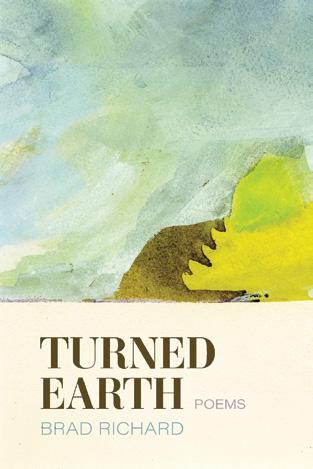
FEBRUARY 2025
90 pages, 6 x 9
978- 0- 8071- 8375- 5
Paperback $20.95, ebook available LSU Press Paperback Original Poetry
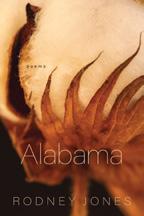
ALSO
978- 0- 8071- 8010- 5 Paperback $20.95
The Southern Review publishes the best contemporary fiction, nonfiction, poetry, and translation by established and emerging writers. Read original and translated prose from writers like Grazia Deledda, Nick Fuller Googins, Mesha Maren, Yxta Maya Murray, Dina Nayeri, Peter Orner, Alejandro Puyana, and many others.
Recent issues include poetry by luminaries such as David Wojahn, Marilyn Nelson, Sharon Olds, Denise Duhamel, Alice Friman, Kwame Dawes, and David St. John, accompanying an array of exciting work by the nation’s top new writers, among
them Maggie Smith, Erika Meitner, Amaud Jamaul Johnson, Jose Hernandez Diaz, Charles Rafferty, and Danusha Laméris.
Since its inception in 1935, The Southern Review has been a significant presence in the contemporary literary landscape. Notable writers who appeared in its pages early in their careers are now among the nation’s most distinguished and important voices.
www.thesouthernreview.org
email: southernreview@lsu.edu (225) 578-6453 fax: (225) 578-6461
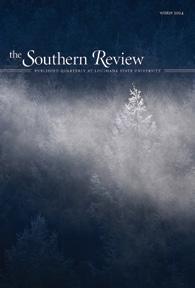
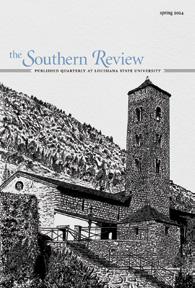
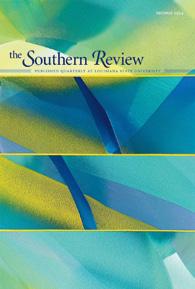
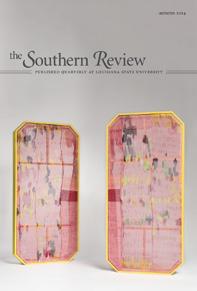
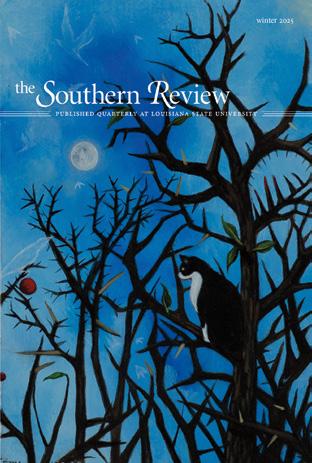
INDIVIDUAL SUBSCRIPTION RATES:
Single Copy $15
One year (4 issues) $50
Two years (8 issues) $85
Three years (12 issues) $110
Digital Subscription, One year (4 issues) $30
Digital + Print Subscription, One year (4 issues) $60
INSTITUTIONAL SUBSCRIPTION RATES: Single Copy $30
One year (4 issues) $115
Two years (8 issues) $145
Three years (12 issues) $180
Please add $18 per year for international shipping.
The Southern Review is available electronically through Project Muse: http://muse.jhu.edu
Booksellers: Please contact The Southern Review to order ISSN 0038- 4534. Issues are published quarterly.
SALES INFORMATION
GENERAL INFORMATION
Requests for sales and discount information should be directed to our sales department (225-578-8282).
PRICES AND DISCOUNTS
Booksellers: Unless otherwise indicated, all books are subject to our trade discount schedule, a copy of which is available from our sales department. Books marked s are short-discount titles. For information regarding the LSU Press Agency Plan, please contact the sales department or a sales representative.
Libraries: Please contact our customer service department (800-848-6224) for the latest discount schedule. Prices, discounts, publication dates, and manufacturing specifications listed in this catalog are subject to change without notice.
LSU Press participates in the Cataloging-in-Publication Program of the Library of Congress.
SUBSIDIARY RIGHTS
Inquiries regarding subsidiary rights should be directed to McIntosh and Otis, 235 Main Street, Suite 318, White Plains, NY 10601
https://mcintoshandotis.com/ 212-687-7400 FAX 212-687-6894
SALES REPRESENTATIVES
DOMESTIC:
LSU Press is represented by Columbia University Press Sales Consortium.
Southeast: Catherine Hobbs Phone: 804-690-8529 | Fax: 434-589-3411 Email: ch2714@columbia.edu
Northeast: Conor Broughan
Phone: 917-826-7676 | Email: cb2476@columbia.edu
Midwest: Kevin Kurtz
Phone: 773-316-1116 | Fax: 773-489-2941
Email: kk2841@columbia.edu
West: William Gawronski
Phone: 310-488-9059 | Fax: 310-832-4717 Email: wgawronski@earthlink.net
SALES REPRESENTATIVES (CONTINUED)
FOREIGN:
Canada: Ampersand | Phone: 866-736-5620
Fax: 866-849-3819 | Online: www.ampersandinc.ca
Canada (Orders): UTP Distribution | Phone: 800-565-9523 Fax: 800-221-9985 | Online: www.utpdistribution.com
Europe and all other regions: Contact our sales department at 225-578-8282.
DIGITAL REVIEW COPIES
Digital review copies of select titles are available for a limited review period at: https://www.edelweiss.plus/
Contact our sales department for additional information on digital review copies: 225-578-8282.
DESK COPY POLICY
If your bookstore has already placed an order for 10 or more copies of a title, ONE (1) free desk copy will be provided. To order please include the name of the bookstore, the number of books ordered, the name of the course, and your daytime phone number. A desk copy should not be requested if an examination copy has already been received.
EXAMINATION COPY POLICY
Qualified instructors of appropriate courses may request examination copies of books they wish to consider for classroom use (only three titles per instructor per semester, please). Paperback books are available free of charge upon receipt of a $6.00 per title shipping and handling fee. We will extend a 20% professional discount on cloth editions. Prepayment (check, money order, VISA, Master Card, Amex, or Discover) must accompany your request and must include a shipping and handling fee of $6.00 for the first book plus $1.00 for each additional book ordered.
Requests must be made on departmental letterhead or from a university email address and include the title of the book, the name of the course, projected enrollment, your mailing address, and your daytime phone number. Please allow 4 weeks for delivery. Please mail examination copy requests to: Longleaf Services, Inc., 116 S. Boundary St., Chapel Hill, NC 27514-3808, fax to (800) 272-6817, or email to orders@longleafservices.org.
CONTACT INFORMATION
Orders and Inquiries
Orders and inquiries regarding stock availability, accounts, invoices, and shipping should be directed to our customer service department (800-848-6224)
Online Orders
www.lsupress.org
Phone Orders (800) 848-6224
Fax Orders (800) 272-6817
Email Orders orders@longleafservices.org
To join our email list, visit us online at
